The rain in Sp…Sp…Sp…
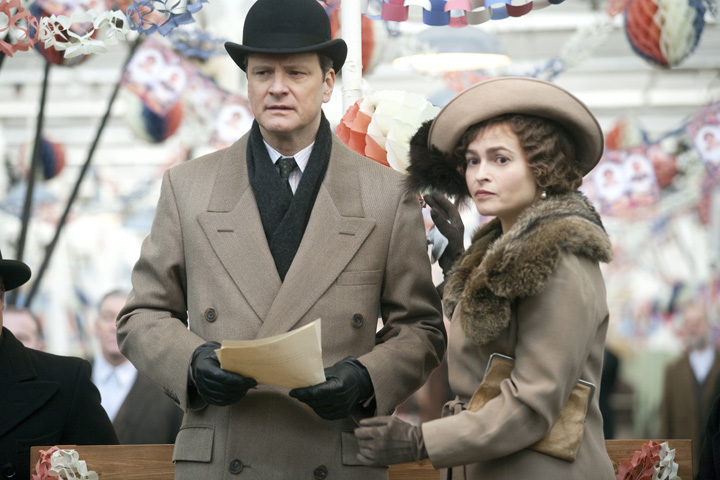
Colin Firth and Helena Bonham Carter.
“The King’s Speech” tells the story of a man compelled to speak to the world with a stammer. It must be painful enough for one who stammers to speak to another person. To face a radio microphone and know the British Empire is listening must be terrifying. At the time of the speech mentioned in this title, a quarter of the Earth’s population was in the Empire, and of course much of North America, Europe, Africa and Asia would be listening — and with particular attention, Germany.
The king was George VI. The year was 1939. Britain was entering into war with Germany. His listeners required firmness, clarity and resolve, not stammers punctuated with tortured silences. This was a man who never wanted to be king. After the death of his father, the throne was to pass to his brother Edward. But Edward renounced the throne “in order to marry the woman I love,” and the duty fell to Prince Albert, who had struggled with his speech from an early age.
In “The King’s Speech,” director Tom Hooper opens on Albert ( Colin Firth ), attempting to open the British Empire Exhibition in 1925. Before a crowded arena and a radio audience, he seizes up in agony in efforts to make the words come out right. His father, George V ( Michael Gambon ), has always considered “Bertie” superior to Edward ( Guy Pearce ), but mourns the introduction of radio and newsreels, which require a monarch to be seen and heard on public occasions.
At that 1925 speech, we see Bertie’s wife, Elizabeth (Helena Bonham Carter), her face filled with sympathy. As it becomes clear that Edward’s obsession with Wallis Simpson (Eve Best) is incurable, she realizes her Bertie may face more public humiliation. He sees various speech therapists, one of whom tries the old marbles-in-the-mouth routine first recommended by Demosthenes. Nothing works, and then she seeks out a failed Australian actor named Lionel Logue ( Geoffrey Rush ), who has set up a speech therapy practice.
Logue doesn’t realize at first who is consulting him. And one of the subjects of the film is Logue’s attitude toward royalty, which I suspect is not untypical of Australians; he suggests to Albert that they get on a first-name basis. Albert has been raised within the bell jar of the monarchy and objects to such treatment, not because he has an elevated opinion of himself but because, well, it just isn’t done. But Logue realizes that if he is to become the king’s therapist, he must first become his friend.
If the British monarchy is good for nothing else, it’s superb at producing the subjects of films. “The King’s Speech,” rich in period detail and meticulous class distinctions, largely sidesteps the story that loomed over this whole period, Edward’s startling decision to give up the crown to marry a woman who was already divorced three times. Indeed, the Duke and Duchess of Windsor (as they became) would occupy an inexplicable volume of attention for years, considering they had no significance after the Duke’s abdication. The unsavory thing is that Wallis Simpson considered herself worthy of such a sacrifice from the man she allegedly loved. This film finds a more interesting story about better people; Americans, who aren’t always expert on British royalty, may not necessarily realize that Albert and wife Elizabeth were the parents of Queen Elizabeth II. God knows what Edward might have fathered.
Director Tom Hooper makes an interesting decision with his sets and visuals. The movie is largely shot in interiors, and most of those spaces are long and narrow. That’s unusual in historical dramas, which emphasize sweep and majesty and so on. Here we have long corridors, a deep and narrow master control room for the BBC, rooms that seem peculiarly oblong. I suspect he may be evoking the narrow, constricting walls of Albert’s throat as he struggles to get words out.
The film largely involves the actors Colin Firth, formal and decent, and Geoffrey Rush, large and expansive, in psychological struggle. Helena Bonham Carter, who can be merciless (as in the “Harry Potter” films), is here filled with mercy, tact and love for her husband; this is the woman who became the much-loved Queen Mother of our lifetimes, dying in 2002 at 101. As the men have a struggle of wills, she tries to smooth things (and raise her girls Elizabeth and Margaret). And in the wider sphere, Hitler takes power, war comes closer, Mrs. Simpson wreaks havoc, and the dreaded day approaches when Bertie, as George VI, will have to speak to the world and declare war.
Hooper’s handling of that fraught scene is masterful. Firth internalizes his tension and keeps the required stiff upper lip, but his staff and household are terrified on his behalf as he marches toward a microphone as if it is a guillotine. It is the one scene in the film that must work, and it does, and its emotional impact is surprisingly strong. At the end, what we have here is a superior historical drama and a powerful personal one. And two opposites who remain friends for the rest of their lives.
Note: The R rating refers to Logue’s use of vulgarity. It is utterly inexplicable. This is an excellent film for teenagers.


Roger Ebert
Roger Ebert was the film critic of the Chicago Sun-Times from 1967 until his death in 2013. In 1975, he won the Pulitzer Prize for distinguished criticism.
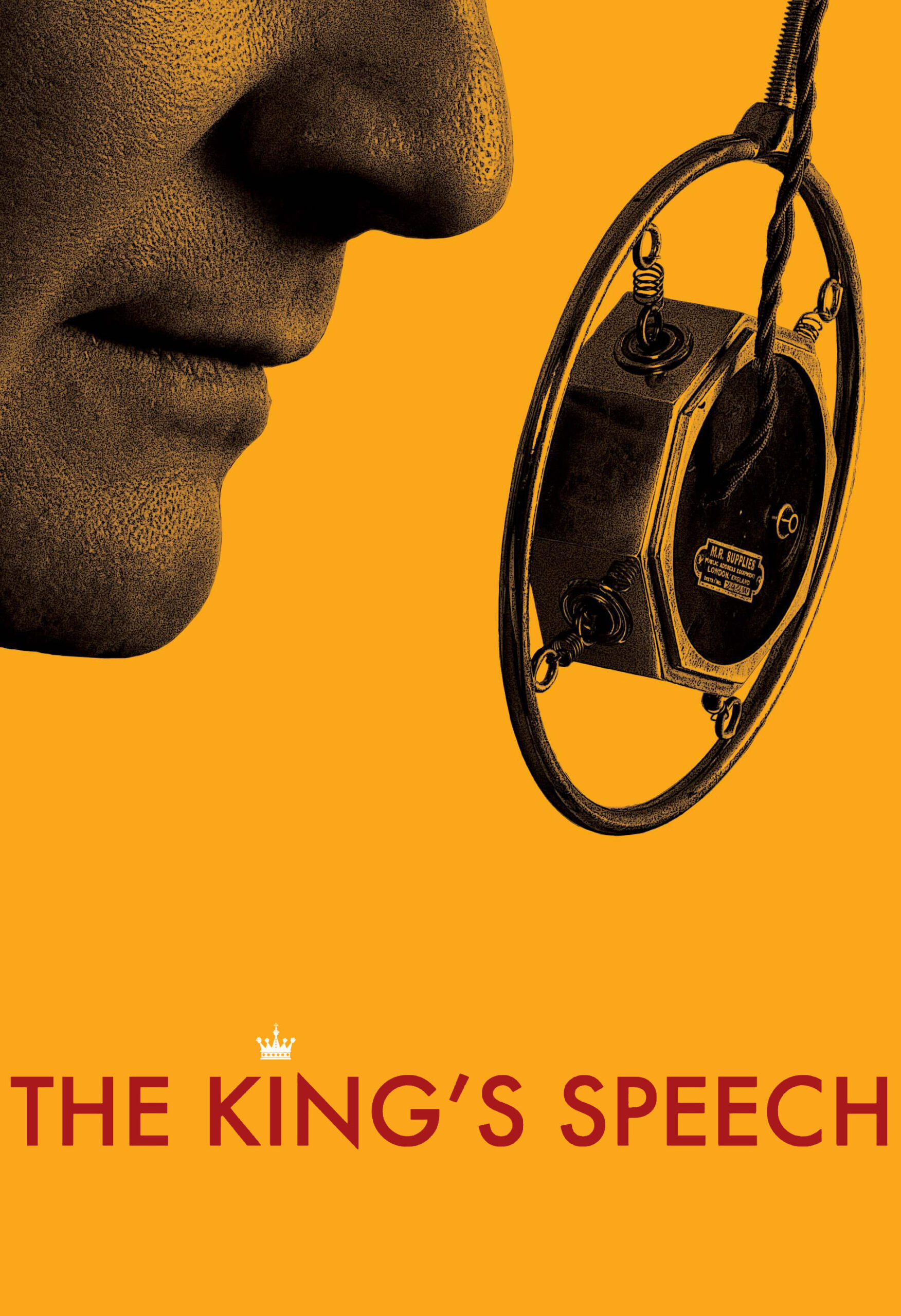
- David Seidler
Directed by
Leave a comment, now playing.

Transformers One

American Crime Story: Aaron Hernandez
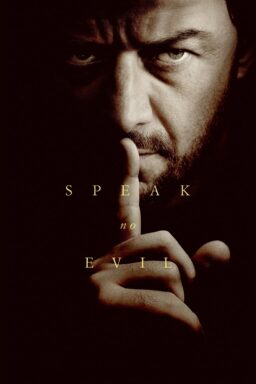
Speak No Evil (2024)
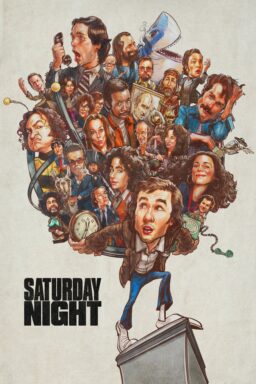
Saturday Night
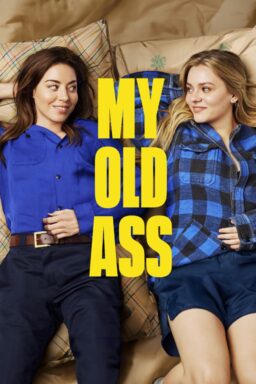
The Killer’s Game

Girls Will Be Girls

The 4:30 Movie
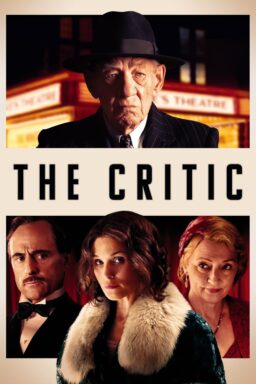
Sweetheart Deal
Latest articles.

TIFF 2024: Table of Contents
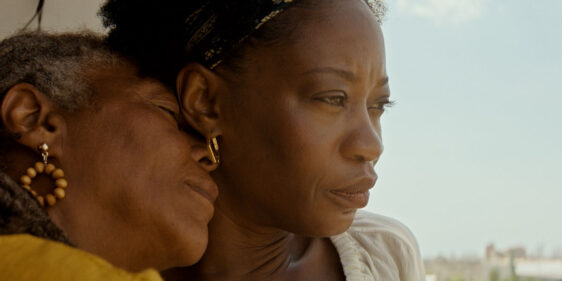
TIFF 2024: Village Keeper, 40 Acres, Flow
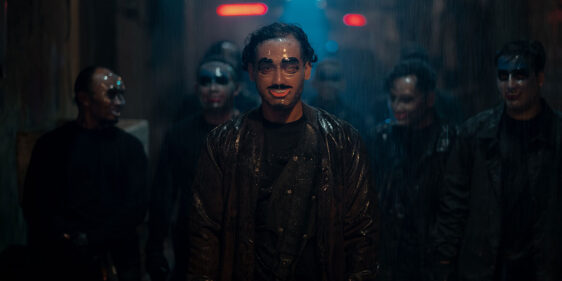
TIFF 2024: The Shadow Strays, Friendship, The Shrouds

TIFF 2024: Babygirl, All We Imagine as Light, Queer
The best movie reviews, in your inbox.
- Cast & crew
- User reviews
The King's Speech

The story of King George VI, his unexpected ascension to the throne of the British Empire in 1936, and the speech therapist who helped the unsure monarch overcome his stammer. The story of King George VI, his unexpected ascension to the throne of the British Empire in 1936, and the speech therapist who helped the unsure monarch overcome his stammer. The story of King George VI, his unexpected ascension to the throne of the British Empire in 1936, and the speech therapist who helped the unsure monarch overcome his stammer.
- David Seidler
- Colin Firth
- Geoffrey Rush
- Helena Bonham Carter
- 834 User reviews
- 487 Critic reviews
- 88 Metascore
- 109 wins & 206 nominations total

Top cast 67

- King George VI

- Lionel Logue

- Queen Elizabeth

- Archbishop Cosmo Lang

- Private Secretary

- BBC Radio Announcer

- Robert Wood

- BBC Technician

- Dr. Blandine Bentham

- Laurie Logue
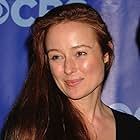
- Myrtle Logue

- Valentine Logue
- Anthony Logue

- Princess Elizabeth

- Princess Margaret

- Theatre Director
- All cast & crew
- Production, box office & more at IMDbPro
Best Picture Winners by Year

More like this

Did you know
- Trivia Nine weeks before filming began, Lionel Logue's grandson, Mark Logue , discovered a large box in his attic that contained his grandfather's personal papers. The box held Lionel Logue's diary, his appointment book, notes from his speech therapy sessions with King George VI , and over 100 personal letters to Logue from the King. It also contained what is believed to be the actual copy of the speech used by George VI in his 1939 radio broadcast announcing the declaration of war with Germany. Mark Logue turned his grandfather's papers, letters, and diary over to director Tom Hooper and screenwriter David Seidler , who used them to flesh out the relationship between Logue and the King. Geoffrey Rush and Colin Firth also read through the material for insight into their characters. The exchange in this movie between Logue and King George VI following his radio speech ("You still stammered on the 'W'." / "Well, I had to throw in a few so they knew it was me.") was taken directly from Logue's diary. Firth insisted that it should be included in the movie.
- Goofs In the final speech, King George VI has one blue eye and one brown eye. Colin Firth had lost a contact lens.
King George VI : All that... work... down the drain. My own... b... brother, I couldn't say a single w-word to him in reply.
Lionel Logue : Why do you stammer so much more with David than you ever do with me?
King George VI : 'Cos you're b... bloody well paid to listen.
Lionel Logue : Bertie, I'm not a geisha girl.
King George VI : Stop trying to be so bloody clever.
Lionel Logue : What is it about David that stops you speaking?
King George VI : What is it about you that bloody well makes you want to go on about it the whole bloody time?
Lionel Logue : Vulgar, but fluent; you don't stammer when you swear.
King George VI : Oh, bugger off!
Lionel Logue : Is that the best you can do?
King George VI : [like an elocution lesson] Well... bloody bugger to you, you beastly bastard.
Lionel Logue : Oh, a public school prig could do better than that.
King George VI : Shit. Shit, shit, shit, shit, shit, shit, shit, shit, shit, shit, shit, shit!
Lionel Logue : Yes!
King George VI : Shit!
Lionel Logue : Defecation flows trippingly from the tongue!
King George VI : Because I'm angry!
Lionel Logue : Do you know the f-word?
King George VI : F... f... fornication?
Lionel Logue : Oh, Bertie.
King George VI : Fuck. Fuck! Fuck, fuck, fuck and fuck! Fuck, fuck and bugger! Bugger, bugger, buggerty buggerty buggerty, fuck, fuck, arse!
Lionel Logue : Yes...
King George VI : Balls, balls...
Lionel Logue : ...you see, not a hesitation!
King George VI : ...fuckity, shit, shit, fuck and willy. Willy, shit and fuck and... tits.
- Crazy credits In the end credit roll, Philip Clements is listed twice as Assistant Sound Editor.
- Connections Featured in Breakfast: Episode dated 22 October 2010 (2010)
- Soundtracks Le nozze di Figaro Overture Written by Wolfgang Amadeus Mozart [During the first therapy session when King's voice is being recorded]
User reviews 834
- Nov 5, 2010
- Just what time frame are we talking about here?
- What causes Bertie's stammer?
- Why couldn't King Edward marry Wallis Simpson?
- December 25, 2010 (United States)
- United States
- United Kingdom
- Official Site
- El Discurso del Rey
- Elland Road Football Stadium, Elland Road, Beeston, Leeds, West Yorkshire, England, UK (as Wembley Stadium at start of film)
- The Weinstein Company
- UK Film Council
- Momentum Pictures
- See more company credits at IMDbPro
- $15,000,000 (estimated)
- $138,797,449
- Nov 28, 2010
- $472,088,310
Technical specs
- Runtime 1 hour 58 minutes
- Dolby Digital
Related news
Contribute to this page.
- IMDb Answers: Help fill gaps in our data
- Learn more about contributing
More to explore
Recently viewed.
- Share full article
Advertisement
Supported by
Movie Review | 'The King’s Speech'
The King’s English, Albeit With Twisted Tongue

By Manohla Dargis
- Nov. 25, 2010
British films that make it to American screens these days often fall into two distinct niches: life is miserable and life is sweet (to borrow a title from the director Mike Leigh, who oscillates between the two). Given its quality headliners and high commercial profile (ding-dong, is that Oscar calling?), it’s no surprise that “The King’s Speech,” a buddy story about aggressively charming opposites — Colin Firth as the stutterer who would be king and Geoffrey Rush as the speech therapist — comes with heaping spoonfuls of sugar.
The story largely unfolds during the Great Depression, building to the compulsory rousing end in 1939 when Britain declared war on Nazi Germany, world calamities that don’t have a patch on the urgent matter of the speech impediment of Albert Frederick Arthur George (Mr. Firth). As a child, Albert, or Bertie as his family called him, the shy, sickly second son of King George V (Michael Gambon, memorably severe and regal), had a stutter debilitating enough that as an adult he felt compelled to conquer it. In this he was aided by his wife, Elizabeth (a fine Helena Bonham Carter), a steely Scottish rose and the mother of their daughters, Elizabeth, the future queen (Freya Wilson), and Margaret (Ramona Marquez).
Albert meets his new speech therapist, Lionel Logue (Mr. Rush), reluctantly and only after an assortment of public and private humiliations. (In one botched effort, a doctor instructs Albert to talk with a mouthful of marbles, a gagging endeavor that might have altered the imminent monarchical succession.) As eccentric and expansive as Albert is reserved, Logue enters the movie with a flourish, insisting that they meet in his shabby-chic office and that he be permitted to call his royal client, then the Duke of York, by the informal Bertie. It’s an ideal odd coupling, or at least that’s what the director Tom Hooper would have us believe as he jumps from one zippy voice lesson to the next, pausing every so often to wring a few tears.
To that generally diverting end, Albert barks and brays and raps out a calculatingly cute string of expletives, including the four-letter kind that presumably earned this cross-demographically friendly film its R. With their volume turned up, the appealing, impeccably professional Mr. Firth and Mr. Rush rise to the Acting occasion by twinkling and growling as their characters warily circle each other before settling into the therapeutic swing of things and unknowingly preparing for the big speech that partly gives the film its title. Before you know it, Elizabeth (Ms. Bonham Carter), the future dumpling known as the Queen Mother, is sitting on Bertie’s chest during an exercise while he lies on Logue’s floor, an image that is as much about the reassuring ordinariness of the royals as it is about Albert’s twisting tongue.
It isn’t exactly “Pygmalion,” not least because Mr. Hooper has no intention of satirizing the caste system that is one of this movie’s biggest draws. Unlike “The Queen,” a barbed look at the royal family after the death of Diana, Princess of Wales, “The King’s Speech” takes a relatively benign view of the monarchy, framing Albert as a somewhat poor little rich boy condemned to live in a fishbowl, an idea that Mr. Hooper unwisely literalizes by overusing a fisheye lens. The royals’ problems are largely personal, embodied by King George playing the stern 19th-century patriarch to Logue’s touchy-feely Freudian father. And while Albert initially bristles at Logue’s presumptions, theirs is finally a democracy of equals, an angle that makes their inequities go down in a most uneventful way.
Each character has his moments, instances when Bertie the closed book tentatively opens and Logue’s arrogance gets away from him, but both are too decent, too banal and the film too ingratiating to resonate deeply. Albert’s impediment certainly pales in comparison with the drama surrounding his older, popular brother, David, later King Edward VIII (a fantastic Guy Pearce), and his married American divorcée, Mrs. Wallis Simpson (Eve Best). After King George V dies, David assumes the crown and continues to carry on with Mrs. Simpson, a liaison that, because of its suggestively perverse power dynamics — at a party, she orders the new king (yoo-hooing “David”) to fetch her booze — hints at a more interesting movie than the one before you.
We are having trouble retrieving the article content.
Please enable JavaScript in your browser settings.
Thank you for your patience while we verify access. If you are in Reader mode please exit and log into your Times account, or subscribe for all of The Times.
Thank you for your patience while we verify access.
Already a subscriber? Log in .
Want all of The Times? Subscribe .
Symbols and Tropes
Hero's journey, point of view, what's up with the title, what's up with the ending, shock rating, tired of ads, logging out…, logging out....
You've been inactive for a while, logging you out in a few seconds...
W hy's T his F unny?
Watch CBS News
The story behind "The King's Speech"
February 20, 2011 / 11:46 PM EST / CBS News
With 12 Oscar nominations, "The King's Speech" is among the most nominated films of all time. It's based on the true story of George VI, the father of the present queen of England. George VI was a man who, in the 1930s, desperately did not want to be king. He was afflicted nearly all his life by a crippling stammer which stood to rob Britain of a commanding voice at the very moment that Hitler rose to threaten Europe.
"The King's Speech" came, seemingly out of nowhere to become the film to beat on Oscar night. And Colin Firth is now the odds-on favorite to win best actor for his critically acclaimed portrayal of George VI.
The hidden letters behind "The King's Speech" What's it like to hold history in your hands? Scott Pelley had that chance, reporting on the Oscar-nominated film "The King's Speech." Hear from Colin Firth and Mark Logue, whose grandfather's friendship with a king made history.
Segment: "The King's Speech Extra: The real King George Extra: Colin Firth, King and Queen Extra: Firth's Oscar-nominated roles Extra: Firth's "bland" looks Pictures: Colin Firth on "60 Minutes"
When correspondent Scott Pelley asked Firth if he liked being king, Firth said, "I think it's hard to think of anything worse, really. I mean, I wouldn't change places with this man. And I would be very surprised if anybody watching the film would change places with this man."
"It's a perfect storm of catastrophic misfortunes for a man who does not want the limelight, who does not want to be heard publicly, who does not want to expose this humiliating impediment that he's spent his life battling," Firth explained. "He's actually fighting his own private war. He'd rather have been facing machine gun fire than have to face the microphone."
The microphone hung like a noose for the king, who was a stutterer from the age of 8. He was never meant to be king. But in 1936 his older brother gave up the throne to marry Wallace Simpson, a divorced American. Suddenly George VI and his wife Elizabeth reigned over an empire that was home to 25 percent of the world's population.
And like the George of over 1,000 years before, he had a dragon to slay: radio.
"When I looked at images of him or I listened to him, you do see that physical struggle," Firth said of the king's public speeches. "His eyes close, and you see him try to gather himself. And it's heartbreaking."
Among those listening was a 7-yr.-old British boy who, like the king, had a wealth of words but could not get them out.
"I was a profound stutterer. I started stuttering just before my third birthday. I didn't rid myself of it until I was 16. But my parents would encourage me to listen to the king's speeches during the war. And I thought, 'Wow if he can do that, there is hope for me.' So he became my childhood hero," David Seidler, who wrote the movie, told Pelley.
Seidler had grown up with the story, but he didn't want to tell the tale until he had permission from the late king's widow, known as The Queen Mother.
Seidler had sent a letter to her. "And finally, an answer came and it said, 'Dear Mr. Seidler, please, not during my lifetime the memory of these events is still too painful.' If the Queen Mum says wait to an Englishman, an Englishman waits. But, I didn't think I'd have to wait that long," he explained.
Asked why, Seidler said, "Well, she was a very elderly lady. Twenty five years later, just shy of her 102nd birthday, she finally left this realm."
After the Queen Mother's death in 2002, Seidler went to work. He found the theme of the story in the clash between his royal highness and an Australian commoner who became the king's salvation, an unknown speech therapist named Lionel Logue.
"The words that keep coming up when you hear about Lionel Logue are 'charisma' and 'confidence.' He would never say, 'I can fix your stuttering.' He would say, 'You can get a handle on your stuttering. I know you can succeed,'" Seidler said.
Geoffrey Rush plays Logue, an unorthodox therapist and a royal pain.
They say you can't make this stuff up, and in much of the film that's true. Seidler could not have imagined his work would lead to a discovery that would rewrite history. Researchers for the film tracked down Lionel Logue's grandson Mark, because the movie needed family photos to get the clothing right.
Mark Logue not only had pictures, he also had some diaries.
Produced by Ruth Streeter His grandfather's diaries were up in the attic in boxes that the family had nearly forgotten. When Logue hauled them down for the movie, he discovered more than 100 letters between the therapist and his king.
"'My dear Logue, thank you so much for sending me the books for my birthday, which are most acceptable.' That's so British isn't it. 'Yours very sincerely, Albert,'" Logue read from one of the letters.
"As you read through all these letters between your grandfather and the king, what did it tell you about the relationship between these two men?" Pelley asked.
"It's not the relationship between a doctor and his patient, it's a relationship between friends," Logue said.
We met Logue at the same address where his grandfather treated the king. And among the hundreds of pages of documents were Logue's first observations of George VI.
"Probably the most startling thing was the king's appointment card," Logue told Pelley. "It described in detail the king's stammer, which we hadn't seen anywhere else. And it also described in detail the intensity with the appointments."
The king saw Lionel Logue every day for an hour, including weekends.
"You know, he was so committed. I think he decided 'This is it. I have to overcome this stammer, and this is my chance,'" Mark Logue told Pelley.
In the film, the king throws himself into crazy therapies. But in truth, Logue didn't record his methods. The scenes are based on Seidler's experience and ideas of the actors.
"We threw in stuff that we knew. I mean, somebody had told me that the only way to release that muscle," actor Geoffrey Rush said of one of the speech exercises he did in the movie. "And of course, little did I realize that the particular lens they were using on that shot made me look like a Galapagos tortoise."
While the treatments spring from imagination, the actors read Logue's diaries and letters to bring realism to everything else.
"The line at the end, I found reading the diaries in bed one night, 'cause this is what I used to do every night, when Logue says 'You still stammered on the 'W'," Firth said.
The line was used in the movie.
"It shows that these men had a sense of humor. It showed that there was wit. It showed there was self mockery and it just showed a kind of buoyancy of spirit between them. The fact that he spoke on a desk standing upright in this little hidden room is something we found in the diaries as well," Firth told Pelley.
"In reality he had to stand up to speak, he had to have the window open," Firth said. "And he had to have his jacket off."
"And that wonderful, specific little eccentric observation that came from reality," Firth added.
One of the most remarkable things to come out of the Logue attic was a copy of what maybe the most important speech the king ever made - the speech that gave the movie its name. This was the moment when King George VI had to tell his people that for the second time in a generation they were at war with Germany. The stakes were enormous. The leader of the empire could not stumble over these words.
Mark Logue has the original copy of "the speech," typed out on Buckingham Palace stationary.
"What are all of these marks? All these vertical lines? What do they mean?" Pelley asked, looking over the documents.
"They're deliberate pauses so that the king would be able to sort of attack the next word without hesitation," Logue said. "He's replacing some words, he's crossing them out and suggesting another word that the King would find easier to pronounce."
"Here's a line that he's changed, 'We've tried to find a peaceful way out of the differences between my government.' He's changed that from, 'my government,' to, 'the differences between ourselves and those who would be our enemies,'" Pelley said.
"You know, I'm curious. Have either of you snuck into a theater and watched the film with a regular audience?" Pelley asked Firth and Rush.
"No, the only time I've ever snuck in to watch my own film I got quite nervous about it, because I just thought it be embarrassing to be seen doing that, so I pulled my collar up, and the hat down, over my eyes, and you know, snuck in as if I was going into a porn cinema, or something and went up the stairs, crept in, sidled in, to sit at the back, and I was the only person in the cinema. That's how well the film was doing," Firth remembered.
Now, it's a lot harder for Firth to go unnoticed. Recently he was immortalized with a star on Hollywood's Walk of Fame and brought along his Italian wife Livia.
They've been married 14 years and have two sons. With "The King's Speech," we realized Firth is one of the most familiar actors that we know almost nothing about. So we took him back to his home town Alresford in Hampshire, outside London. He's the son of college professors, but Firth dropped out of high school to go to acting school.
"But you don't have a Hampshire accent," Pelley pointed out.
"No. My accent has changed over the years, as a matter of survival. So until I was about 10, 'I used to talk like that,'" Firth replied, mimicking the local accent. "I remember it might have been on this street, actually, where I think the conversation went something like, 'Oy, you want to fight?' And I said, 'No, I don't.' 'Why not?' 'Well, 'cause you'll win.' 'No, I won't.' 'Well, will I win then?' 'Well, you might not.' And so, you know, we went trying to process the logic. And I thought, 'Have we dealt with it now?"
"Do we still have to fight?" Pelley asked.
"Do we actually have to do the practical now? We've done the theory," Firth replied.
He wanted us to see his first stage. It turned out to be the yard of his elementary school where he told stories from his own imagination.
"And at lunch times on the field up here, the crowd would gather and demand the story. They'd all sit 'round and say, 'No, we want the next bit,'" Firth remembered.
Firth told Pelley he found his calling for acting at the age of 14.
Asked what happened then, he told Pelley, "I used to go to drama classes up the road here on Saturday mornings. And one day I just had this epiphany. It was I can do this. I want to do this."
He has done 42 films in 26 years, most of them the polar opposite of "The King's Speech," like "Mamma Mia!"
"How hard was it to get you to do the scene for the closing credits?" Pelley asked, referring to Firth doing a musical number in an outrageous, Abba-inspired outfit.
"I think that's the reason I did the film," Firth joked.
"You have no shame?" Pelley asked.
"I'm sorry. That's if one thing has come out of '60 Minutes' here, it's we have discovered, we've unveiled the fact that Colin Firth has no shame. I am such a drag queen. It's one of my primary driving forces in life. If you cannot dangle a spandex suit and a little bit of mascara in front of me and not just have me go weak at the knees," Firth joked.
From queen to king, Firth is an actor of amazing range who now has his best shot at this first Oscar.
Like George VI himself, this movie wasn't meant to be king. "The King's Speech" was made for under $15 million. But now the movie, the director, the screenwriter David Seidler, who made it happen, and all the principal actors are in the running for Academy Awards. It would be Geoffrey Rush's second Oscar.
"What advice to you have for this man who may very likely win the Oscar this year?" Pelley asked Rush.
"Well enjoy it. It isn't the end of anything because you will go on and do a couple more flops probably, you might even sneak into another film in which no one is in the house," Rush joked.
But on Oscar night, stammering King George may have the last word. A lot of movies are based on true stories. But "The King's Speech" has reclaimed history.
More from CBS News
Log in or sign up for Rotten Tomatoes
Trouble logging in?
By continuing, you agree to the Privacy Policy and the Terms and Policies , and to receive email from the Fandango Media Brands .
By creating an account, you agree to the Privacy Policy and the Terms and Policies , and to receive email from Rotten Tomatoes and to receive email from the Fandango Media Brands .
By creating an account, you agree to the Privacy Policy and the Terms and Policies , and to receive email from Rotten Tomatoes.
Email not verified
Let's keep in touch.

Sign up for the Rotten Tomatoes newsletter to get weekly updates on:
- Upcoming Movies and TV shows
- Rotten Tomatoes Podcast
- Media News + More
By clicking "Sign Me Up," you are agreeing to receive occasional emails and communications from Fandango Media (Fandango, Vudu, and Rotten Tomatoes) and consenting to Fandango's Privacy Policy and Terms and Policies . Please allow 10 business days for your account to reflect your preferences.
OK, got it!
- About Rotten Tomatoes®
- Login/signup
Movies in theaters
- Opening This Week
- Top Box Office
- Coming Soon to Theaters
- Certified Fresh Movies
Movies at Home
- Fandango at Home
- Prime Video
- Most Popular Streaming Movies
- What to Watch New
Certified fresh picks
- 83% Speak No Evil Link to Speak No Evil
- 77% Beetlejuice Beetlejuice Link to Beetlejuice Beetlejuice
- 96% Rebel Ridge Link to Rebel Ridge
New TV Tonight
- 89% The Penguin: Season 1
- 89% High Potential: Season 1
- 83% American Sports Story: Aaron Hernandez: Season 1
- 40% Frasier: Season 2
- 17% Emmys: Season 76
- -- Agatha All Along: Season 1
- -- Monsters: The Lyle and Erik Menendez Story: Season 2
- -- Twilight of the Gods: Season 1
- 100% Tulsa King: Season 2
- -- A Very Royal Scandal: Season 1
Most Popular TV on RT
- 63% The Perfect Couple: Season 1
- 99% Shōgun: Season 1
- 98% Hacks: Season 3
- 74% Kaos: Season 1
- 67% The Old Man: Season 2
- 85% The Lord of the Rings: The Rings of Power: Season 2
- 100% Slow Horses: Season 4
- Best TV Shows
- Most Popular TV
Certified fresh pick
- 95% Fight Night: The Million Dollar Heist: Season 1 Link to Fight Night: The Million Dollar Heist: Season 1
- All-Time Lists
- Binge Guide
- Comics on TV
- Five Favorite Films
- Video Interviews
- Weekend Box Office
- Weekly Ketchup
- What to Watch
47 Best Italian Horror Movies of All Time
30 Most Popular Movies Right Now: What to Watch In Theaters and Streaming
What to Watch: In Theaters and On Streaming
Awards Tour
The Fight Night Cast on Trolling Each Other on Set
Renewed and Cancelled TV Shows 2024
- Trending on RT
- Hispanic Heritage Month
- Spanish-Language Movies
- Re-Release Calendar
The King's Speech
Where to watch.
Watch The King's Speech with a subscription on Max, rent on Fandango at Home, Prime Video, Apple TV, or buy on Fandango at Home, Prime Video, Apple TV.
What to Know
Colin Firth gives a masterful performance in The King's Speech , a predictable but stylishly produced and rousing period drama.
Critics Reviews
Audience reviews, cast & crew.
Colin Firth
King George VI
Geoffrey Rush
Lionel Logue
Helena Bonham Carter
Queen Elizabeth
King Edward VIII
Timothy Spall
Winston Churchill
Movie Clips
More like this, related movie news.
UK Edition Change
- UK Politics
- News Videos
- Paris 2024 Olympics
- Rugby Union
- Sport Videos
- John Rentoul
- Mary Dejevsky
- Andrew Grice
- Sean O’Grady
- Photography
- Theatre & Dance
- Culture Videos
- Fitness & Wellbeing
- Food & Drink
- Health & Families
- Royal Family
- Electric Vehicles
- Car Insurance Deals
- Lifestyle Videos
- Hotel Reviews
- News & Advice
- Simon Calder
- Australia & New Zealand
- South America
- C. America & Caribbean
- Middle East
- Politics Explained
- News Analysis
- Today’s Edition
- Home & Garden
- Broadband deals
- Fashion & Beauty
- Travel & Outdoors
- Sports & Fitness
- Climate 100
- Sustainable Living
- Climate Videos
- Solar Panels
- Behind The Headlines
- On The Ground
- Decomplicated
- You Ask The Questions
- Binge Watch
- Travel Smart
- Watch on your TV
- Crosswords & Puzzles
- Most Commented
- Newsletters
- Ask Me Anything
- Virtual Events
- Wine Offers
- Betting Sites
Thank you for registering
Please refresh the page or navigate to another page on the site to be automatically logged in Please refresh your browser to be logged in
King’s Speech: Key takeaways from public rail ownership to Great British Energy
All the key bills announced in king charles’s speech today, article bookmarked.
Find your bookmarks in your Independent Premium section, under my profile

Sign up for the View from Westminster email for expert analysis straight to your inbox
Get our free view from westminster email, thanks for signing up to the view from westminster email.
King Charles III made only his second ever King’s Speech on July 17 , marking the 2024 state opening of parliament.
In it, he laid out Labour ’s vision for the country and the key legislation the government will begin working on in the coming months.
The party came to power at the start of July, ending 14 years of Tory government. Prime minister Sir Keir Starmer has been keen to hit the ground running, bringing a slate of new bills which seek to change the direction of the country.
“My government will be committed to uniting the country in our shared mission of national renewal,” Sir Keir said, introducing the King’s Speech.
For the latest political updates, follow The Independent’s live coverage
“We will serve every person, regardless of how they voted, to fix the foundations of this nation for the long term. The era of politics as performance and self-interest above service is over.”
There were a total of 39 bills included in the King’s Speech, with some likely to have big impacts on the lives of UK citizens.
Here are the key bills confirmed today and what they could mean for you:
Budget Responsibility Bill
This was the first piece of legislation announced by the King today, a signal from Labour of its emphasis on the mission of economic growth.
The bill will introduce a “fiscal lock” by requiring any major tax or spending changes to be subject to an independent assessment by the Office for Budget Responsibility.
This is a policy that has long been floated by Labour and was detailed in the party’s manifesto. It is in line with chancellor Rachel Reeves’s vision of “securonomics” which sees economic growth and wealth creation prioritised with limited state intervention.
Labour says the bill is designed “to ensure that the mistakes of Liz Truss ‘mini Budget’ cannot be repeated”.
Housebuilding and planning bill

Building on Labour’s commitment to reintroduce mandatory housebuilding targets of 1.5 million new homes over five years, the King’s Speech included the Planning and Infrastructure Bill.
This legislation will reform the planning process, speeding it up to allow more homes and infrastructure to be built. The bill will also reform compulsory purchase order rules and support local planning authorities.
“The current planning regime acts as a major brake on economic growth,” the government said.
“The Planning and Infrastructure Bill will play a key role in addressing this constraint, unlocking more housing and infrastructure across the country and supporting sustained economic growth.”
National Wealth Fund Bill
A new national wealth fund has been designed to attract billions in private sector investment to support UK growth.
Supported by £7.3bn in state funding, the fund is looking to secure roughly triple this in private investment, from sources such as pension funds, to boost the fund.
The bill also aims to align institutions like the UK Infrastructure Bank and the British Business Bank to “mobilise private capital in the industries of the future”.
Pension Schemes Bill
Labour says this bill is designed to support the 15 million people who save in private-sector pension schemes, aiming to increase the amount available for pension savers.
It would do this with measures such as ensuring people’s multiple pension pots are automatically brought together and introducing a new framework for pension schemes.
The government estimates the bill could save the average earner more than £11,000 in their pension pots for retirement.
Employment Rights Bill
Labour’s new bill on workers’ rights lays out a few changes to employment law which it says are designed to “make work pay”.
It forms part of the government’s “New Deal for Working People”, thought to be spearheaded by deputy prime minister Angela Rayner.
The measures include banning “exploitative” zero hour contracts, ending ”fire and rehire” practices, making parental sick leave available from day one on the job, and strengthening statutory sick pay.
Bringing train operators into public ownership
One of the new Labour government’s more radical ideas, the Passenger Railway Services Bill, will see train operators brought into public ownership over the next few years.
The government makes clear that this is an “early step” towards broader reforms, so we won’t see them buying all the rail companies just yet.
Rather, the process will see train operations transfer to the public sector as existing contracts expire, or operators fail to meet their commitments.
The bill will also amend the law so that appointing a publicly owned rail operator is the default.
Labour says the plan will save millions in taxpayer money that is currently paid in fees to private rail operators, as well as allowing them to lower emissions.
It comes alongside the Railways Bill – which aims to create a “unified and simplified” rail system – and the confirmation of a pledge to improve rail links in the north of England.
Great British Energy Bill
A flagship Labour policy, and the one the party has committed the most spending to, this bill gets Great British Energy off the ground.
It will be a publicly owned energy production company that owns, manages and operates clean power projects across the UK.
The bill will allow the company to begin investments and allow energy secretary Ed Miliband to begin securing private-sector partnerships.
Labour says the plan will give the UK energy independence, create new jobs, save money for households and tackle climate change.
Water (Special Measures) Bill
This bill will deliver on Labour’s manifesto pledge of cracking down on water companies that don’t deliver for customers or pollute rivers, lakes and seas.
The policies will see water companies put under strict special measures. These include ensuring water bosses face personal criminal liability for lawbreaking, giving the water regulator powers to ban bonus payments, and introducing a new code of conduct for water companies.
There will also be new powers to bring automatic and severe fines against water companies, and real-time monitors installed at sewage outlets to be independently scrutinised.
Border Security, Asylum and Immigration Bill
Delivering on a key manifesto pledge, Labour has introduced this bill which it says aims to protect national security by deterring Channel crossings and prosecuting the people smugglers responsible.
It will give the newly created Border Security Command and law enforcement more powers to crack down on criminal gangs and strengthens the penalty for criminals involved.
The government also aims to improve the failing asylum system with the bill, making it more efficient and ending the use of hotels by clearing the asylum backlog.
Tobacco and Vapes Bill
Carried over from Rishi Sunak’s Conservative government, this bill prevents anyone born after 1 January 2009 from purchasing tobacco products, ever.
This would mean children aged 15 today – in “Generation Alpha” – will never be able to buy a pack of cigarettes.
The bill will also stop vapes and products like nicotine pouches from being deliberately advertised to children, and strengthen enforcement activity around underage sales.
Renters’ Rights Bill
First introduced in 2023, the Renters’ Reform Bill was dropped after Rishi Sunak called the general election.
Labour has now brought it back, with some slight differences.
The key measure will be the scrapping of Section 21 “no fault” eviction notices – the controversial power allowing landlords to evict tenants from their properties at two months’ notice without needing to give any reason.
Labour is expected to strengthen the bill by empowering tenants to challenge “unreasonable” rent increases.
House of Lords reform
Labour made a manifesto commitment to constitutional change, and the King’s Speech has delivered on Labour’s planned House of Lords reforms.
After this bill passes, hereditary peers will no longer be able to sit and vote in the House of Lords.
Join our commenting forum
Join thought-provoking conversations, follow other Independent readers and see their replies
Subscribe to Independent Premium to bookmark this article
Want to bookmark your favourite articles and stories to read or reference later? Start your Independent Premium subscription today.
New to The Independent?
Or if you would prefer:
Hi {{indy.fullName}}
- My Independent Premium
- Account details
- Help centre
- Issue Archive
- Stay Connected
Review: The King's Speech
By Scott Foundas in the November-December 2010 Issue
“In the past, all a king had to do was look good in uniform,” observes King George V (Michael Gambon)—the first British monarch to address his subjects via radio—early on in Tom Hooper’s splendid period drama The King’s Speech . “Now we must invade people’s homes and ingratiate ourselves,” he continues. “We’ve become actors!” And this was 1934, three decades before the landmark BBC television documentary Royal Family brought the House of Windsor even closer to the people, and five before Lady Diana Spencer irrevocably blurred the line between commoner and royal, princess and pop icon. George V’s comments are directed at his youngest son, Albert Frederick Arthur George (Colin Firth), who will soon be thrust upon the throne just as England readies to enter World War II. But unlike his sober, stentorian-voiced father, the eventual George VI (father of Queen Elizabeth II) is hopelessly tongue-tied when it comes to public speaking, the victim of an acute stammer that turns ordinary conversation into a humiliating succession of false starts and too-long pauses.
If The King’s Speech risks being too cute by half in its depiction of how this royal without a voice comes to find one in his nation’s hour of need, Hooper and screenwriter David Seidler neatly avoid that trap by training their sights on a much bigger subject—namely, how the wireless waves of radio affected seismic changes to the nature of politics and society at large, turning public figures into performers, and narrowing the distance between classes. Yet amidst all the ballyhoo about Hooper’s film as The Social Network ’s chief rival for Oscar gold, few if any have noted the extent to which the two movies orbit a similar central theme—two portraits of a communications revolution, separated by a century.
We first see the king-to-be (then Duke of York) freezing at the mic during his closing speech of the 1925 Empire Exhibition at Wembley. After being subjected to a succession of useless therapies by a series of royal quacks, the Duke takes a grudging chance on one Lionel Logue (Geoffrey Rush), an Australian-born amateur actor and self-taught speech therapist with no credentials other than his own track record. What follows suggests a role-reversal My Fair Lady , with the lowly Antipodean coaching the aristocrat through measures (rolling around on the ground, shouting streams of obscenities) that have more in common with radical psychotherapy than conventional speech pathology.
Conducting the sessions in a draughty basement room with unfinished walls, Logue adds insult to injury by asking His Royal Highness leading questions about his childhood—an inventory of other forcibly corrected “defects,” including left-handedness and knock knees—and calling him by his family nickname, “Bertie.” (He insists that, in order for the treatment to work, the two men must regard each other as equals.) Their back-and-forth repartee, courtesy of Seidler (a septuagenarian Hollywood vet whose most notable prior credit was on Francis Coppola’s Tucker: The Man and His Dream ), is as sharp as anything this side of Aaron Sorkin. Even sharper, arguably, is the film’s sense of the high value placed on normalcy in a society with little tolerance for disability and aberration.
These are the sort of plum roles that can all too easily turn into smoked ham, but Firth and Rush manage them with an ideal balance of flourish and restraint. Hooper, who has become something of a specialist in exhuming British history from the mothballs of Masterpiece Theatre —his credits include Elizabeth I (05) and the masterful Longford (06), as well as The Damned United (09)—does so again, shooting in long takes and exaggerated wide angles that amplify Bertie’s mounting sense of uncertainty as he finds the weight of the world—and so many words—upon his shoulders.
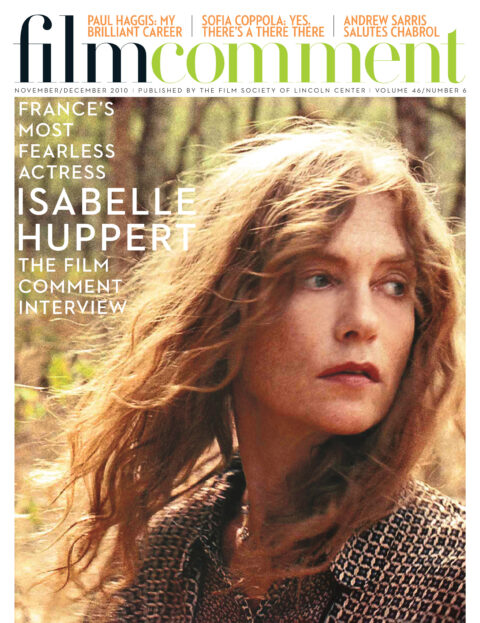
The Film Comment Podcast: The Rebel’s Cinema—Frantz Fanon on Screen #1

The Rebel’s Cinema: Frantz Fanon on Screen

Prison Movie Wives’ Black Heart Movie Diary

“I am innocent because I am innocent”

Sign up for the Film Comment Letter!
Thoughtful, original film criticism delivered straight to your inbox each week. Enter your email address below to subscribe.

Pioneering the Future of AI-Enhanced Storytelling
The King's Speech
A tale of friendship, transformation, and royalty's quest for equality
An uplifting and warm-hearted character study that owes as much of its delight to a charming performance by Geoffrey Rush as it does to a structure built upon depicting a Change Main Character who grows out of seemingly insurmountable odds ( Stop/Good ) to overcome his personal issues. Appearances are at the heart of issues within The King’s Speech , and the Duke of York (Colin Firth as Protagonist ) does his best to keep up the show by being the King his subjects so desperately need ([Story Goal of Being ). Bertie’s change develops as a consequence of his relationship with Lionel Logue (Geoffrey Rush), a speech therapist from the other side of the tracks who demands the two be treated as equals ( Obstacle Character Domain of Universe ). This unique perspective works wonders on the Duke’s personal issues of feeling less-than-equal in matters of royalty ( Main Character Domain of Mind ). Together, the two develop an unlikely friendship as they work to overcome Bertie's speech impediment ( Relationship Story Domain of Physics & Relationship Story Problem of Test ).
Decisions both bad and good (bad on the part of the Duke’s brother David (Guy Pearce) and good on the part of our Hero to continue services with Lionel) propel this film to its Triumphant ending ( Story Driver of Decision , and Story Outcome of Success ). While not overly complex, the film delivers a meaningful example of what can happen when one brings themselves into alignment ([Main Character Solution of Deviation by focusing on doing, rather than worrying endlessly upon the end results ( Obstacle Character Problem of Process ).
Oh, and a brilliant use of Beethoven’s 7th Symphony.
Download the FREE e-book Never Trust a Hero
Don't miss out on the latest in narrative theory and storytelling with artificial intelligence. Subscribe to the Narrative First newsletter below and receive a link to download the 20-page e-book, Never Trust a Hero .
The True Story Behind "The King's Speech"
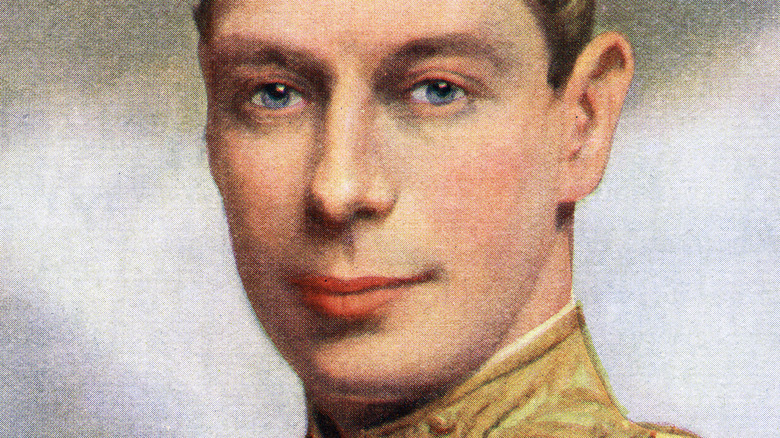
"The King's Speech" is a 2010 dramatic biographical film, recounting the friendship between King George VI of England and his Australian speech therapist, Lionel Logue. The film also covers Edward VIII's 1936 abdication, and George VI's subsequent coronation and shouldering of responsibility during World War II. George VI ultimately must conquer his stammer to assist and guide Britain during the war.
As a film, "The King's Speech" takes a few liberties with the historical timeline and in regards to simplifying certain characters. One element historians took particular umbrage with was the depiction of Winston Churchill . However, overall it is fairly faithful to the historical record. For one thing, George VI really did have a speech impediment since the age of eight, and Lionel Logue did work with him for several years. They did stay friends until they both died. Certain scenes, such as George VI's coronation, were praised for their accurate recapturing of the feel of the 1930s.
The main concept the film changed was simply adding drama to certain scenes, such as the speech announcing war with Germany towards the end. It also condensed the historical timeline significantly, shortening events. This was mostly done for the sake of keeping the narrative moving. Overall, however, " The King's Speech " is a fairly accurate, heartwarming rendering of George VI and Lionel Logue's friendship.
Prince Albert had a stutter as a child
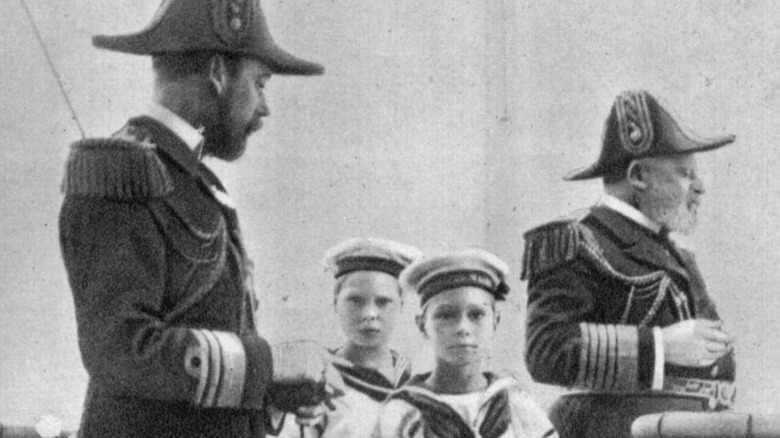
Prince Albert, later George VI, developed a stutter when he was eight that he carried through to his early adult life. His parents were not terribly affectionate with him, and he was susceptible to tears and tantrums – traits he also carried through his adult years, writes Biography . Given that many of his public duties required speeches, Albert needed to – and worked tirelessly – to fix his stammer with multiple doctors and therapists, writes Stuttering Help . He wasn't successful with any speech therapies until he worked with elocutionist and informal speech therapist Lionel Logue, beginning in the 1920s.
When Logue saw the then-Duke of York give a speech, he said to his son, "He's too old for me to manage a complete cure. But I could very nearly do it. I'm sure of that." (via Stuttering Help ). He was right, and his positive attitude helped the duke recover from previous failures that had made him believe the problem caused him to be mentally deficient instead of simply physically injured. Despite how long they worked together, the duke's speech issues had more to do with how held his jaw and pronounced words; the result was that his stammer was mainly cleared up in a matter of months as opposed to years.
Lionel Logue was a self-taught speech therapist
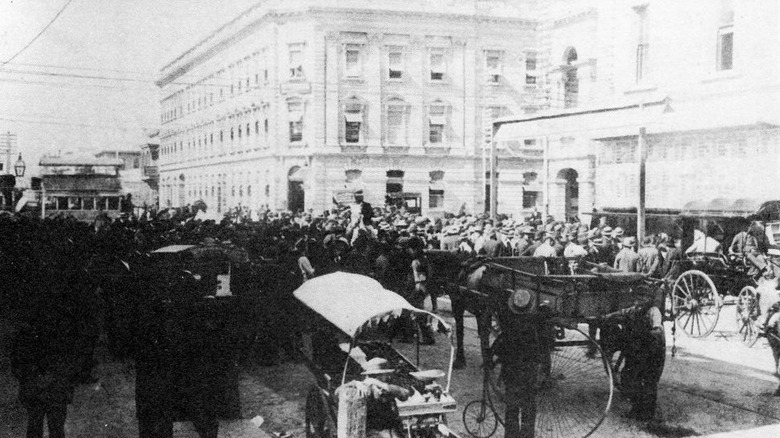
Lionel Logue was an Australian speech therapist who, not being formally trained, used methods he had discovered and created on his own. He worked as an elocutionist first, but fell into helping Australian World War I veterans with speech defects, writes The ASHA Leader . No one else was doing what he was with the veterans, and speech therapy and audiology programs didn't even get off the ground until the 1940s (via UNC Health Sciences Library ). Logue was even a founder of the College of Speech Therapists.
Just before World War I, Logue worked a variety of jobs as a teacher of elocution and drama, theater manager, and reciter of Shakespeare and Dickens (via Speech Language Therapy's Caroline Bowen, a speech language pathologist ). Logue worked with patients on their speech, but also on confidence and the self-belief that they could accomplish what they set out to do. He was empathetic with his patients, and learned from each case he worked on. Logue originally tried out as an actor, and as a result, his manner was somewhere between a teacher and an artist. He was serious about his life's work and resolved to avoid cheapening it by writing a book about his efforts with the king.
Logue began working with Prince Albert in 1926
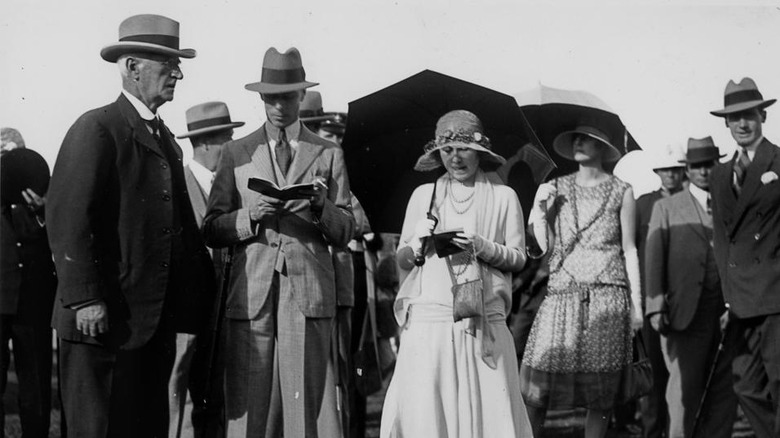
Elizabeth, the Duchess of York, first encouraged her husband to work with Lionel Logue, though the meeting as depicted in the film between Elizabeth and Logue likely didn't happen (via Logue and Conradi's "The King's Speech" ). Logue thus began working with the Duke of York in October 1926, soon after he opened his London practice on Harley Street. Logue first diagnosed the Duke with, according to CNN , acute nervous tension and the habit of closing the throat, which caused him to clip words out.
Logue met with him daily for the next two or three months (in advance of a visit to Australia), and his stammer was gone (for the most part) within that time frame; it didn't take years of treatment (via Speech Language Therapy ). Unlike in the film, in reality, the Duke and Logue weren't necessarily aiming for complete fluency. However, they did continue to work together for the next two decades, mainly on the royal's speeches.
Logue worked with Albert for over 15 years
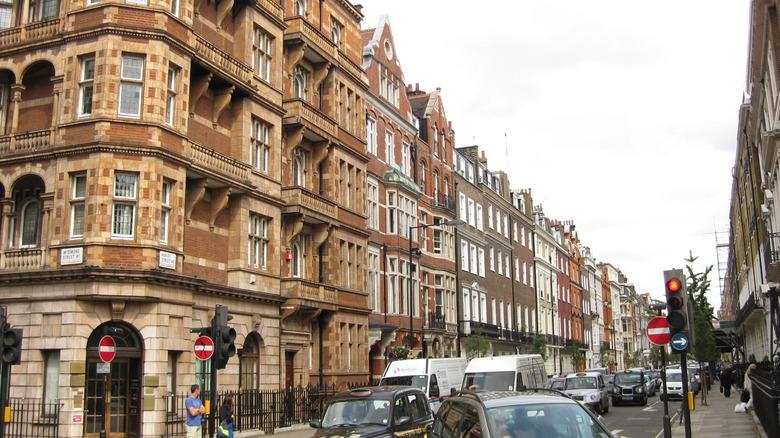
Though the film condenses the timeline to make it seem as though everything takes place over just a few years, Logue and Albert worked together for decades (via CNN ). "The King's Speech" begins in 1925 with the close of the British Empire Exhibition, which would be historically accurate, but time simply speeds by until the film depicts the abdication of Edward VIII in 1936 and later the outbreak of war in 1939 in just a few hours; it doesn't really feel as though a decade and a half have passed.
Regardless, Logue and the duke worked together on speeches even after the duke had mostly mastered his stammer. Lionel Logue's methods were unorthodox and primarily self-taught. He never specifically said what course of treatment he worked on with the duke, saying, according to The ASHA Leader : "...on the matter of Speech Defects, when so much depends on the temperament and individuality, a case can always be produced that can prove you are wrong. That is why I won't write a book." Much of the ideas for the therapy sessions depicted in the film come from Logue's diaries (though plenty of the dialogue was invented), which were inherited by his grandson Mark. They were used in the film, though the director only saw them late in the film's production.
Any sort of therapy is inherently individual, not to mention personal (via Psychiatric Times ). It's no wonder that Logue decided to avoid writing about his work.
Wallis Simpson was a more complex person than the film indicates
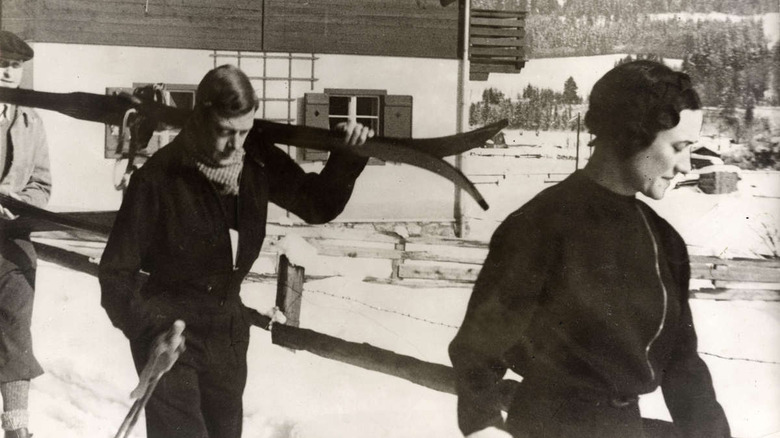
King Edward VIII was crowned in January 1936 and abdicated in December of the same year in order to marry Wallis Simpson , who had been twice divorced (via History ). His younger brother was proclaimed king the next day. The film is sympathetic to George VI and Elizabeth, and Wallis Simpson is cast as a vaguely Nazi-supporting villain; there is little depth to her character. However, her life and motivations were shrouded in rumors from the British upper classes and the media.
The upper classes, who learned about the Edward-Wallis romance before the British media, in particular saw her as an uncouth American divorcee, and had a hard time figuring out why Edward wanted to be with her. When the media did find out, in December 1936, she was both ruined and revered by them, according to History Extra . However, after moving overseas more-or-less permanently she faded from the spotlight. Her unfortunate reputation from the nobles stuck with her.
Ultimately, George VI didn't allow his brother and sister-in-law, who had moved to France, to be productive for the royal family; they asked multiple times for jobs and were denied (via History Extra ). Awful rumors followed Wallis Simpson even past her death in the 1980s, including one that stated she would do anything to become queen of England. Though it's clear both on and off screen that she and Elizabeth disliked each other, Wallis was more than a king-stealing villain.
Churchill was actually opposed to Edward VIII's abdication
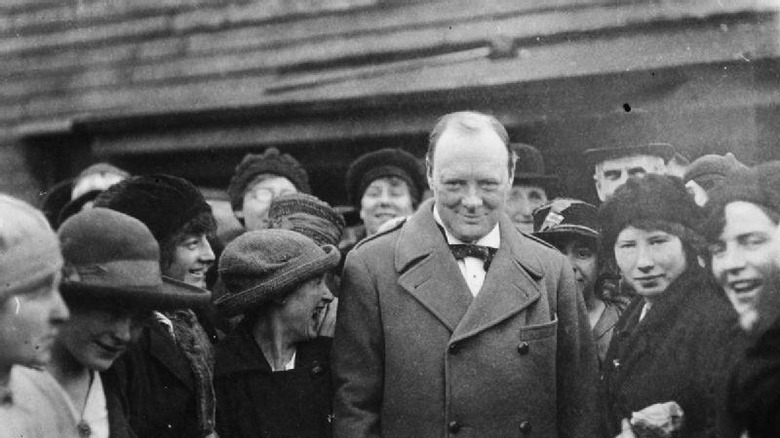
One major element of the film that historians had trouble with is Churchill's abrupt support of George VI, writes Daily History . In real life, he encouraged Edward VIII not to abdicate in 1936, and remained a supporter of the royal, believing something could be worked out without having to resort to abdication. George VI and Elizabeth didn't fully support Churchill later in life due to his actions during the abdication. However, Churchill was later knighted by Elizabeth II (via Biography ).
This element is likely written as such for the film due to the writers having a hard time writing someone as beloved as Churchill with actual flaws. The writers of "Saving Mr. Banks" had a similar issue with Walt Disney and his flaws. As a result, it is one of the only concrete historical aspects that left historians scratching their heads in confusion. Everything else that is changed in the film is mainly done for the sake of adaptation, drama, and the good of the narrative. This change seems to be for the sake of preserving Churchill's reputation. Considering the film's lead-up of events to World War II, and Churchill's role in Britain's survival, it isn't that surprising.
King George VI's coronation was less fraught than the film depicts
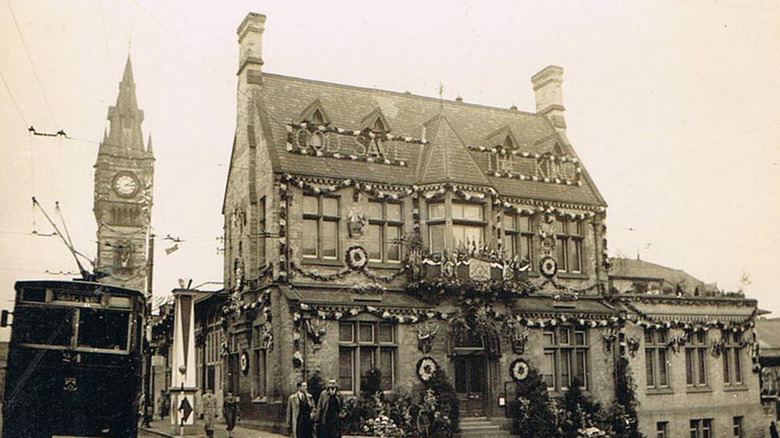
Logue worked with George VI on his coronation speech in 1937. Five days afterward, the king wrote a heartfelt thank you letter for the assistance (via Tatler ), attributing the success to Logue's "expert supervision and unfailing patience." Just as in the film, Logue and his wife are seated in the royal box, so high up that Myrtle Logue needed to use opera glasses in order to see, writes CNN .
However, by this time, the king had mostly mastered his speech impediment, and the dramatic scene in the film with Logue and St. Edward's chair is likely fictional. It was written for the sake of the narrative of George VI realizing he does have a voice. Reality isn't necessarily so cinematic, and after weeks of working on the speech with Logue, George VI delivered it flawlessly. Regardless, according to Daily History , the film accurately conveys the atmosphere of the 1930s and the coronation of a new king. In reality, the king and Logue likely didn't have the same miscommunication as they do in the film, and it is doubly heartwarming that Logue and his wife were seated with the royal family, just because of the services Logue had rendered the new king.
Logue was more deferential to his royal patient
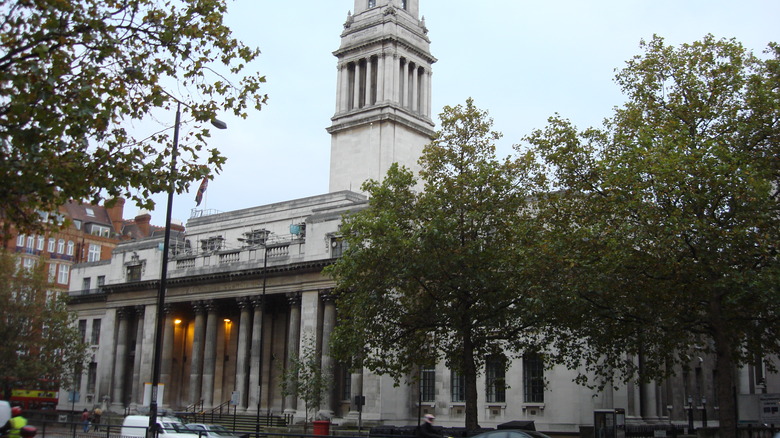
Geoffrey Rush's portrayal is much more animated than Logue likely was in reality. Logue certainly addressed Prince Albert respectfully, and the scenes of swearing in Logue's office are likely invented. Logue also never referred to the prince by a nickname, much less one used exclusively by the family. They were friends in real life, but their relationship was more realistically distant.
According to CNN , the letters Logue wrote to the king are addressed to "Your Royal Highness". On the other hand, the king signed his letters with his first name, indicating a measure of friendship between the two men. Logue also apparently allowed George VI to set treatment goals due to his position. Though they did end up being friends, Logue never forgot who exactly his patient was, and treated him accordingly (via Daily History ). Historical films always add heart-to-heart speeches between people which probably never actually happened but work for the sake of drama and the narrative. "The King's Speech" is no exception.

The speech announcing war with Germany was less dramatic
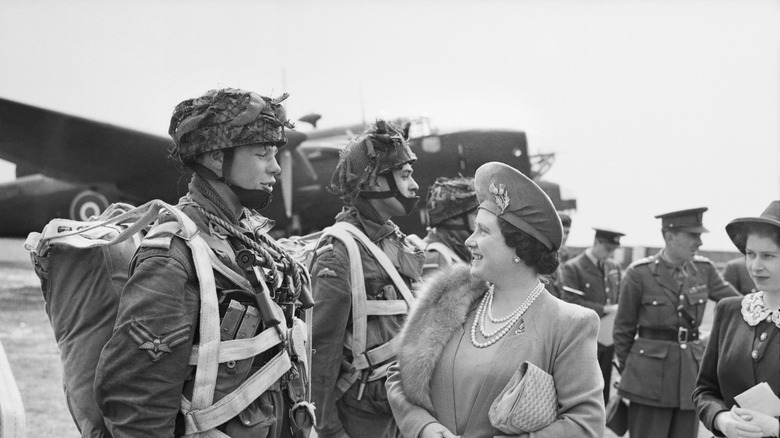
Lionel Logue further assisted George VI during the 1939 speech when he announced Britain was at war with Germany. However, Logue wasn't actually in the room with him, as the film depicts, and only wrote notes on places for the king to pause to collect himself when speaking or on which words to stress, according to CNN . Keep in mind that by this point in time, 13 years after meeting Logue, the king had essentially mastered his stammer. George VI also stood to give the speech, though photographs show him in full military uniform and sitting down.
Lionel Logue's diaries also answered a previously unknown question about the speech that was added to the film. George VI stammered on some of the W's in the speech, and according to a comment he made to Logue, it was so the people would recognize him, writes CNN .
The film turns the event into a climactic event, as a culmination of the years of work the king and Logue have put into his affliction – and which the audience has just watched on screen for the past two hours. Also, though it is unlikely the information was revealed at this exact time in real life, the character of Winston Churchill tells the king just before this speech that he, too, was a stammerer as a child, writes The Lancet . This element is true, though it is positioned for the sake of cinematic drama.
George and Logue's friendship didn't fracture over credentials
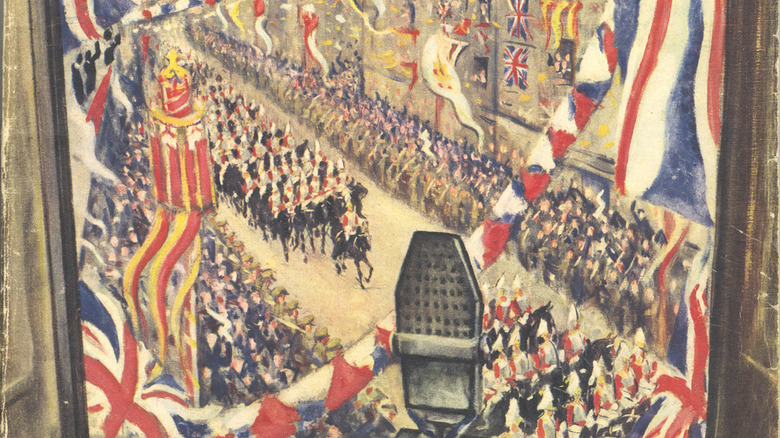
In the film, coronation preparations pause when the archbishop of Canterbury, Cosmo Lang, mentions that Logue doesn't have any formal training. Not having known this beforehand, George VI becomes outraged and only calms after Logue provokes him into speaking without stammering, causing him to realize that he actually can speak accurately. This entire element is invented for the film, presumably for the sake of drama (and humor).
By this point, the two men had known each other for over a decade and were friends. Though their relationship was primarily professional, in scouting out Logue's help, the king must have understood his credentials and it didn't bother him; after all, he worked with Logue, voluntarily, for decades (via Daily History ). Logue's formality likely kept their friendship professional enough that they probably had few personal disagreements.
Logue and the king wrote letters back and forth for years; the earlier letters were signed "Albert" and the later letters "George" by the king, according to CNN , indicating a measure of friendship that was likely meted out to few people. When Logue asked the king in 1948 if he would serve as patron of the College of Speech Therapists, George VI immediately agreed and it became known as the Royal College of Speech Therapy, writes The ASHA Leader .
The film has an obvious pro-George VI bias
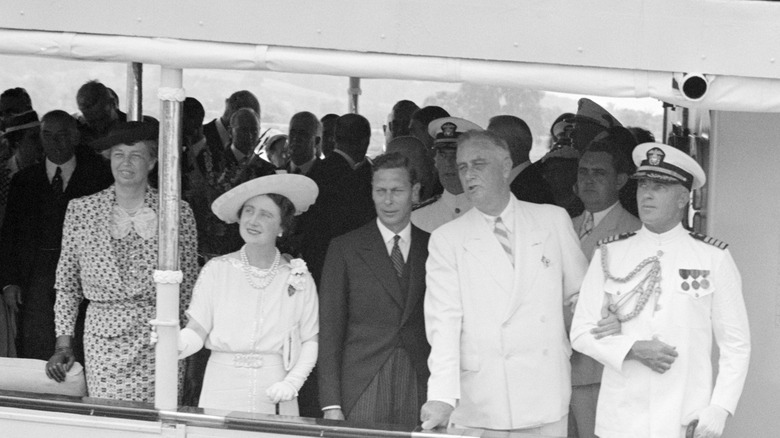
Due to being written from a historical perspective, "The King's Speech" supports George VI, Logue, Elizabeth, and even Winston Churchill as characters and historical figures much more than it does George V, Edward VIII, or Wallis Simpson. The film has an agenda and a narrative it set out to tell: the story of how George VI overcame his stammer and led a nation successfully through a war.
According to The Gazette , the film's textual inclusion of Logue's appointment as a Member of the Royal Victorian Order is accurate. The king appreciated his services enough to reward him with a title for them, and this element certainly adds to the theme of friendship the film is so fond of.
In another interesting example of bias, however, the film omits Edward VIII's Nazi sympathies entirely, though Simpson is written to seem like an outsider to the royals. This was likely done for the sake of Edward's surviving family, though it was a slightly odd omission considering the context of the film. Edward isn't cast as a villain, however, he doesn't quite seem to realize what he's forcing his brother to step into. Though he immediately supports George, Edward doesn't seem to comprehend the royal family's – and the film's – endless demand of duty.
Pardon Our Interruption
As you were browsing something about your browser made us think you were a bot. There are a few reasons this might happen:
- You've disabled JavaScript in your web browser.
- You're a power user moving through this website with super-human speed.
- You've disabled cookies in your web browser.
- A third-party browser plugin, such as Ghostery or NoScript, is preventing JavaScript from running. Additional information is available in this support article .
To regain access, please make sure that cookies and JavaScript are enabled before reloading the page.
Helping Writers Become Authors
Write your best story. Change your life. Astound the world.
- Start Here!
- Story Structure Database
- Outlining Your Novel
- Story Structure
- Character Arcs
- Archetypal Characters
- Scene Structure
- Common Writing Mistakes
- Storytelling According to Marvel
- K.M. Weiland Site
The King’s Speech
Inciting Event: Watching Bertie, the Duke of York, go through another ineffective and humiliating “treatment” for his stammer with another respected doctor. Bertie’s wife Elizabeth gets the name of Lionel Logue, a speech therapist, and visits him to see if he can help her husband.
First Plot Point: After a disastrous first meeting with Lionel Logue, and another stressful and humiliating meeting with his father, King George V, whom everyone loves, Bertie listens to a recording Lionel made of him (Bertie) reading Hamlet perfectly, with no stammering. Bertie realizes it’s possible. He can’t not try.
First Pinch Point: Even before the death of their father the king, it’s apparent Bertie’s older brother David, the Prince of Wales, is going to make a very unsuitable king. After David is crowned King Edward VI, Lionel suggests Bertie would be a much better king. This is basically treason and Bertie says so, but Lionel pushes his point. He and Bertie argue, and Bertie breaks off their sessions.
Midpoint: David abdicates and the thing Bertie has been dreading happens: He must become king, which means not just speaking in public, but being an inspiring leader, something he never dreamed he was capable of doing. But now he must.
Second Pinch Point: Bertie calls in Lionel to help him get through the coronation. During the rehearsal, Bertie is informed Lionel is not an actual doctor. He’s embarrassed for training with someone who isn’t “qualified.”
Third Plot Point: Lionel explains how he got into speech therapy and in the process shows Bertie that results are more important than “letters behind a name.” Bertie now has full confidence in Lionel, to the point that now he’s standing up to the people who had always intimidated him to defend Lionel. He’s embracing the role of king.
Climax: With guidance from Lionel, Bertie gives the speech of his life, explaining to the country why they are going to war again so soon after the horrible experience of the Great War. This speech will define him as a king capable of leading his nation through its worst crisis. By the end of the speech, he believes it himself.
Climactic Moment: After the speech, Bertie thanks Lionel, calling him “Lionel” for the first time, instead of “Dr. Logue.” For the first time, instead of calling him “Bertie,” Lionel calls him “Your Majesty.”
Resolution: It’s very quick. Bertie goes out on the balcony with his family and we can see now that he’s fully embraced the role and responsibility of being king.
Notes: Besides being well structured, this movie is a great example of how to introduce the tension right away, then keep raising it gradually by constantly upping the stakes through the course of the story. At the beginning of the movie, Bertie–and the viewers–don’t know that by the end he’ll be looking at the same goal, of successfully making a speech, but by then the stakes will be so much higher.
(Submitted by Marnie Werner.)
Sign Up Today

Story Structure Database Index
Click here for a complete alphabetical list of all titles in the Story Structure Database.
SELECT GENRE

(Amazon affiliate link)

Subscribe to Story Structure Database Updates

Return to top of page
Copyright © 2016 · Helping Writers Become Authors · Built by Varick Design
Common Sense Media
Movie & TV reviews for parents
- For Parents
- For Educators
- Our Work and Impact
Or browse by category:
- Movie Reviews
- Best Movie Lists
- Best Movies on Netflix, Disney+, and More
Common Sense Selections for Movies

50 Modern Movies All Kids Should Watch Before They're 12

- Best TV Lists
- Best TV Shows on Netflix, Disney+, and More
- Common Sense Selections for TV
- Video Reviews of TV Shows

Best Kids' Shows on Disney+

Best Kids' TV Shows on Netflix
- Book Reviews
- Best Book Lists
- Common Sense Selections for Books

8 Tips for Getting Kids Hooked on Books

50 Books All Kids Should Read Before They're 12
- Game Reviews
- Best Game Lists
Common Sense Selections for Games
- Video Reviews of Games

Nintendo Switch Games for Family Fun

- Podcast Reviews
- Best Podcast Lists
Common Sense Selections for Podcasts

Parents' Guide to Podcasts

- App Reviews
- Best App Lists

Social Networking for Teens

Gun-Free Action Game Apps

Reviews for AI Apps and Tools
- YouTube Channel Reviews
- YouTube Kids Channels by Topic

Parents' Ultimate Guide to YouTube Kids

YouTube Kids Channels for Gamers
- Preschoolers (2-4)
- Little Kids (5-7)
- Big Kids (8-9)
- Pre-Teens (10-12)
- Teens (13+)
- Screen Time
- Social Media
- Online Safety
- Identity and Community

How to Help Kids Build Character Strengths with Quality Media
- Family Tech Planners
- Digital Skills
- All Articles
- Latino Culture
- Black Voices
- Asian Stories
- Native Narratives
- LGBTQ+ Pride
- Best of Diverse Representation List

Multicultural Books

YouTube Channels with Diverse Representations

Podcasts with Diverse Characters and Stories
The king's speech.

- Common Sense Says
- Parents Say 66 Reviews
- Kids Say 127 Reviews
Common Sense Media Review

Superb drama about overcoming fears is fine for teens.
Parents Need to Know
Parents need to know that The King's Speech is an engrossing, fact-based drama that's rated R primarily for a few scenes of strong language (including one "f"-word-filled outburst). It has inspiring and empowering messages about triumphing over your fears. An indie about a king who stutters…
Why Age 14+?
Strong language includes "bastard," "bloody," "tits,&qu
Some social drinking (sherry, whisky, wine).
A king abdicates from the throne because of his involvement with a divorcee. The
A character struggles with his temper, which is fueled by frustration.
Any Positive Content?
The film has a stirring message: Our biggest limitations are the voices in our h
The three main characters serve as strong role models: Lionel Logue, though some
Strong language includes "bastard," "bloody," "tits," "damn," "ass," "hell," and "bugger." And in one memorable scene, a man yells out a stream of words like "s--t" and "f--k."
Did you know you can flag iffy content? Adjust limits for Language in your kid's entertainment guide.
Drinking, Drugs & Smoking
Did you know you can flag iffy content? Adjust limits for Drinking, Drugs & Smoking in your kid's entertainment guide.
Sex, Romance & Nudity
A king abdicates from the throne because of his involvement with a divorcee. There are references to her "talents" behind closed doors.
Did you know you can flag iffy content? Adjust limits for Sex, Romance & Nudity in your kid's entertainment guide.
Violence & Scariness
Did you know you can flag iffy content? Adjust limits for Violence & Scariness in your kid's entertainment guide.
Positive Messages
The film has a stirring message: Our biggest limitations are the voices in our head that remind us of all of our imperfections and failures. But they're only voices, and our will and perseverance are stronger than our fears. Communication, integrity, and humility are major themes. The film has some classist overtones, but they’re placed within historical context.
Positive Role Models
The three main characters serve as strong role models: Lionel Logue, though somewhat untraditional in his approach to speech therapy (at least for the movie's time period), believes in himself so much that he's able to help others do so, too. The queen is a lesson in being supportive without condescension, and King George VI is a man not to be denied his life because of his past.
Parents need to know that The King's Speech is an engrossing, fact-based drama that's rated R primarily for a few scenes of strong language (including one "f"-word-filled outburst). It has inspiring and empowering messages about triumphing over your fears. An indie about a king who stutters might not seem like typical adolescent fare, but don't judge a movie by the brief synopsis: Teens will enjoy it as much as the grown-ups will if they give it a chance. In addition to the swearing, there's some social drinking, but that all fades in comparison to the movie's surprisingly moving themes of hope and perseverance. Note: An edited version of the movie that removes/lessens some of the strongest language has been rated PG-13 and released separately. To stay in the loop on more movies like this, you can sign up for weekly Family Movie Night emails .
Where to Watch
Videos and photos.

Parent and Kid Reviews
- Parents say (66)
- Kids say (127)
Based on 66 parent reviews
Great Oscar winning about overcoming fears.
I loved this movie, what's the story.
In THE KING'S SPEECH, King George VI ( Colin Firth ), father to Queen Elizabeth II, inherited the British throne in 1936 after his brother Edward's controversial abdication to marry divorcee Wallis Simpson. Ultimately, he would lead the United Kingdom through World War II. But even before he ascended the throne, he was a man struggling with a persistent and troubling condition: He stammered. This was a source of deep despair for the soon-to-be king, who was known among friends and family members as Bertie. Despite his wife's ( Helena Bonham Carter ) best efforts and deep, abiding love, Bertie was stunted by rage and anxiety. But in this film based on true events, the king finally finds an ally in Lionel Logue ( Geoffrey Rush ), an Australian speech therapist who helps Bertie gain the confidence and will to overcome his fears and let his voice be heard, literally and metaphorically.
Is It Any Good?
It is a singularly gratifying experience to watch this film's three stars -- Firth, Bonham Carter, and Rush -- do what they do best: act. It's like watching a master class. They disappear into their characters and make them both interesting and understandable. That's not always the case with films about royalty. Often, they're a visual (and unremarkable) summary of what we know from books; here, they fascinate with their trials, triumphs, and, most of all, humanity. And for a movie steeped in a feel-good message -- "You don't need to be afraid of the things you were afraid of when you were 5," intones one man -- it's far from clichéd.
Credit, too, goes to director Tom Hooper and screenwriter David Seidler, who himself conquered a stutter and was inspired by the king. They have created characters so rich that they compel viewers to rush to the Web for some post-viewing research. We know a lot about today's royals, but they don't hold a candle to their predecessors -- or at least to the ones portrayed here. The movie makes history and self-help irresistible. Bottom line? The King's Speech is superb.
Talk to Your Kids About ...
Families can talk about the messages in The King's Speech. What are viewers meant to take away from watching?
How does the movie portray stuttering and those who suffer from it? Does it seem realistic and believable? How does Bertie's struggle with stuttering affect him?
How did the queen pave the way for the king's success? Are they positive role models? Do you think the movie portrays them accurately? Why might filmmakers change some details in a fact-based story?
How do the characters in The King's Speech demonstrate communication and perseverance ? What about integrity and humility ? Why are these important character strengths?
Movie Details
- In theaters : November 26, 2010
- On DVD or streaming : April 19, 2011
- Cast : Colin Firth , Geoffrey Rush , Helena Bonham Carter
- Director : Tom Hooper
- Inclusion Information : Female actors
- Studio : Weinstein Co.
- Genre : Drama
- Character Strengths : Communication , Humility , Integrity , Perseverance
- Run time : 111 minutes
- MPAA rating : R
- MPAA explanation : some language
- Award : Academy Award
- Last updated : May 29, 2024
Did we miss something on diversity?
Research shows a connection between kids' healthy self-esteem and positive portrayals in media. That's why we've added a new "Diverse Representations" section to our reviews that will be rolling out on an ongoing basis. You can help us help kids by suggesting a diversity update.
Suggest an Update
What to watch next.

Elizabeth: The Golden Age

Drama Movies That Tug at the Heartstrings
Biopic movies, related topics.
- Communication
- Perseverance
Want suggestions based on your streaming services? Get personalized recommendations
Common Sense Media's unbiased ratings are created by expert reviewers and aren't influenced by the product's creators or by any of our funders, affiliates, or partners.
NEWS... BUT NOT AS YOU KNOW IT
Five key policies announced in first King’s Speech of Labour government

Share this with
To view this video please enable JavaScript, and consider upgrading to a web browser that supports HTML5 video
Labour has announced sweeping changes i n their first King’s Speech , including confirmation of VAT on private school fees and plans to build 1.5 million new homes.
The new government will focus on ‘security, fairness and opportunity for all’, King Charles said in his speech for the State Opening of Parliament 2024.
Wearing the glittering Imperial Crown , he read out the speech written by Keir Starmer for the traditional kick-off of a new government.
Every policy will be fully costed, he said, swiping at Liz Truss whose minibudget tax cuts caused turmoil in the markets and were blamed for mortgage hikes.
So what are some of the biggest changes announced?
1. Smoking to eventually be banned completely, with vapes also restricted
Keir Starmer has kept a policy from the previous government to ban people currently aged 14 or under from ever buying cigarettes legally.
The age people can legally buy them will gradually increase, so that anyone born from 2009 can never do so.
There will also be limits imposed on the sale and marketing of vapes.
2. ‘Hillsborough’ law to be enacted
Families of victims of the 1989 Hillsborough stadium disaster, when 97 people were killed in a fatal crowd crush at a football match, have been campaigning for a new law compelling public authorities to speak fully and openly in official investigations and inquiries.
A new law will introduce a ‘duty of candour for public servants’.
3. Workers rights strengthened
Major changes to employment rights were also unveiled, meaning people will be able to access rights such as parental leave immediately, rather than having to wait two years.
An Employment Rights Bill will be introduced within the first 100 days banning ‘exploitative’ zero-hours contracts, ending policies of fire and re-hire, and making parental leave, sick pay and protection from unfair dismissal available from day one in a job for all workers.
Flexible working will be the default from the first day in a job, while it will be unlawful to sack a woman who has had a baby for six months after she returns to work.
The Bill will also remove ‘unnecessary’ restrictions on trade unions, including the Conservative government’s controversial law aimed at ensuring a minimum level of service during strikes.
4. House of Lords hereditary peers reform
The remaining hereditary peers will be kicked out of the House of Lords as the first step to reforming the chamber.
New legislation will end what officials called the ‘outdated and indefensible’ presence of members of the upper chamber – mainly men – who are there by right of birth.
The Government also plans changes to the Commons, with the King setting out proposals for a ‘modernisation committee’ as he opened the new session of Parliament.
The Lords reforms under Tony Blair reduced the number of hereditary peers to 90, plus the Earl Marshal and Lord Great Chamberlain. That was only intended as a short-term compromise, but the situation has persisted for 25 years.
5. Protections for renters and end to no-fault evictions
A Renters’ Rights Bill will resurrect the Conservatives’ Renters (Reform) Bill, which had been described by homelessness charity Shelter as a ‘once-in-a-generation opportunity’.
A promise within it to end Section 21 ‘no-fault’ evictions had been delayed, with the previous Government saying courts had no capacity, prompting accusations they had caved into pro-landlord MPs.
Keir Starmer said: ‘We will introduce tough new protections for renters, end no-fault evictions and raise standards to make sure homes are safe for people to live in.’
What else is in the King's Speech?
Other key measures in the programme include:
– Establishing state-owned energy production firm Great British Energy with £8.3 billion of public money across the Parliament.
– Creating a £7.3 billion national wealth fund to invest in schemes to generate economic growth and clean energy.
– A law to put water companies into ‘special measures’ to clean up rivers, lakes and seas, with bosses facing personal criminal liability for lawbreaking and a beefed-up regulator having the power to ban bonus payments if environmental standards are not met.
– A Bill to create a new Border Security Command and putting stronger penalties in place for migrant smuggling gangs as part of the effort to curb crossing of the English Channel.
The quirk of British tradition sees the monarch read out the new prime minister’s plans rather than then doing it themselves, saying ‘my government will…’ as they are the head of state.
‘My Government will seek a new partnership with both business and working people and help the country move on from the recent cost-of-living challenges by prioritising wealth creation for all communities,’ Charles said.
The ‘fundamental mission’ will be to secure economic growth, the King said.
The King added: ‘My ministers will get Britain building, including through planning reform, as they seek to accelerate the delivery of high-quality infrastructure and housing.’
He said the government pledged full support for Nato, including providing Ukraine with a ‘clear path’ to membership. The government would also ‘seek to strengthen the border and make streets safer’ with enhanced counter terror powers to tackle organised immigration crime, he said.
The government is also ‘committed to a two-state solution with a safe and secure Israel alongside a viable and sovereign Palestinian state’.
And there would be investment in the NHS, improving it as a service for all once again.

Cannon shots boomed to the King’s arrival this morning, where the first Labour government for 14 years is beginning in earnest.
The event i s full of pomp, ceremony, and quirky oddities such an MP ‘taken hostage ’, but it’s also a crucial part of the political calendar.
It is one of the first major events for new prime minister Keir Starmer , who is expected to set out plans for more than 35 new bills and draft bills with an emphasis on improving transport, creating jobs and accelerating the building of houses and infrastructure in a bid to improve economic growth.
As well, it’s a major public event, with carriages and soldiers parading through London in scenes you only really see otherwise for a royal wedding, coronation, or state funeral.
‘Black Rod’ arrived in the House of Commons to inform MPs they were commanded by the King to make their way to the House of Lords, where they will listen to King read out the speech.
The event is a target for protest, with ten members of Youth Demand already arrested in Westminster on suspicion of conspiracy to cause public nuisance this morning.
Last week the group called for supporters to assemble at Victoria Embankment Gardens on Wednesday morning in protest over Prime Minister Sir Keir Starmer’s handling of the Israel-Hamas war.
On social media the Metropolitan Police said: ‘A further 20 to 25 have now gathered in Victoria Embankment Gardens and further arrests are being made.’
The King's Speech 2024 full transcript
‘My Lords and Members of the House of Commons.
‘My Government will govern in service to the country.
‘My Government’s legislative programme will be mission-led and based upon the principles of security, fairness and opportunity for all.
‘Stability will be the cornerstone of my Government’s economic policy and every decision will be consistent with its fiscal rules. It will legislate to ensure that all significant tax and spending changes are subject to an independent assessment by the Office for Budget Responsibility. Bills will be brought forward to strengthen audit and corporate governance, alongside pension investment.
‘Securing economic growth will be a fundamental mission. My Government will seek a new partnership with both business and working people and help the country move on from the recent cost-of-living challenges by prioritising wealth creation for all communities. My ministers will establish an industrial strategy council. It is my Government’s objective to see rising living standards in all nations and regions in the United Kingdom.
‘My ministers will get Britain building, including through planning reform, as they seek to accelerate the delivery of high-quality infrastructure and housing. They will also pursue sustainable growth by encouraging investment in industry, skills and new technologies.
‘My Government is committed to making work pay and will legislate to introduce a New Deal for Working People to ban exploitative practices and enhance employment rights. It will seek to establish the appropriate legislation to place requirements on those working to develop the most powerful artificial intelligence models.
‘My Government believes that greater devolution of decision-making is at the heart of a modern dynamic economy and is a key driver of economic growth, and my ministers will introduce an English Devolution Bill. Legislation will be introduced to give new powers to metro mayors and combined authorities. This will support local growth plans that bring economic benefit to communities.
‘A Bill will be introduced to allow local leaders to take control of their local bus services. My ministers will bring forward legislation to improve the railways by reforming rail franchising, establishing Great British Railways and bringing train operators into public ownership.
‘Taken together these policies will enhance Britain’s position as a leading industrial nation and enable the country to take advantage of new opportunities that can promote growth and wealth creation.
‘My Government recognises the urgency of the global climate challenge and the new job opportunities that can come from leading the development of the technologies of the future. It is committed to a clean energy transition which will lower energy bills for consumers over time.
‘A Bill will be introduced to set up Great British Energy, a publicly-owned clean power company headquartered in Scotland, which will help accelerate investment in renewable energy such as offshore wind. Legislation will be brought forward to help the country achieve energy independence and unlock investment in energy infrastructure. A Bill will be introduced to support sustainable aviation fuel production. My Government recognises the need to improve water quality and a Bill will be introduced to strengthen the powers of the water regulator.
‘My Government will seek to strengthen the border and make streets safer. A Bill will be introduced to modernise the asylum and immigration system, establishing a new Border Security Command and delivering enhanced counter-terror powers to tackle organised immigration crime. Legislation will be brought forward to strengthen community policing, give the police greater powers to deal with anti-social behaviour and strengthen support for victims.
‘Measures will be introduced to improve the safety and security of public venues and help keep the British public safe from terrorism. My Government will bring forward plans to halve violence against women and girls.
‘My ministers will seek to raise educational standards and break down barriers to opportunity. Action will be taken to get people back in employment following the impact of the pandemic. A Bill will be introduced to raise standards in education and promote children’s wellbeing. Measures will be brought forward to remove the exemption from Value Added Tax for private school fees, which will enable the funding of 6,500 new teachers. My Government will establish Skills England which will have a new partnership with employers at its heart, and my ministers will reform the apprenticeship levy.
‘Legislation will be introduced to give greater rights and protections to people renting their homes, including ending no-fault evictions and reforming grounds for possession. Draft legislation will be published on leasehold and commonhold reform.
‘A Bill will be introduced to establish an independent football regulator to ensure greater sustainability in the game and strengthen protections for fans.
‘My Government will improve the National Health Service as a service for all, providing care on the basis of need regardless of the ability to pay. It will seek to reduce the waiting times, focus on prevention and improve mental health provision for young people. It will ensure mental health is given the same attention and focus as physical health. My ministers will legislate to modernise the Mental Health Act so it is fit for the 21st century.
‘A Bill will be introduced to progressively increase the age at which people can buy cigarettes and impose limits on the sale and marketing of vapes. My ministers will also legislate to restrict advertising of junk food to children along with the sale of high caffeine energy drinks to children. A draft Bill will be brought forward to ban conversion practices.
‘My Government will take steps to help rebuild trust and foster respect. Legislation will be brought forward to introduce a duty of candour for public servants. A Bill will be introduced to establish a statutory Armed Forces Commissioner to act as a strong independent champion for our gallant armed forces and their families.
‘Legislation on race equality will be published in draft to enshrine the full right to equal pay in law.
‘My Government will strengthen its work with the devolved governments in Scotland, Wales and Northern Ireland so that the best outcomes possible are delivered for citizens across the United Kingdom. My ministers will establish a new Council of the Nations and Regions to renew opportunities for the Prime Minister, heads of devolved governments and mayors of combined authorities to collaborate with each other.
‘My Government will continue to support the political institutions and devolved government in Northern Ireland. In consultation with all parties, measures will be brought forward to begin the process of repealing and replacing the Northern Ireland Troubles (Legacy and Reconciliation) Act 2023.
‘Measures to modernise the constitution will be introduced, including House of Lords reform to remove the right of hereditary peers to sit and vote in the Lords. My ministers will strengthen the integrity of elections and encourage wide participation in the democratic process.
‘The Government will propose a modernisation committee of the House of Commons, which will be tasked with driving up standards, improving work practices and reforming procedures.
‘My Government will ensure a strong defence based on the North Atlantic Treaty Organisation’s (Nato) common values of individual liberty, democracy, human rights and the rule of law. Its commitment to Nato will remain unshakeable. It will maintain a strong armed forces, including the nuclear deterrent. To ensure that the United Kingdom’s defence capabilities are matched to the changing nature of global strategic threats, my Government will conduct a strategic defence review.
‘My Government will continue to give its full support to Ukraine and its people and it will endeavour to play a leading role in providing Ukraine with a clear path to Nato membership.
‘My Government will seek to reset the relationship with European partners and work to improve the United Kingdom’s trade and investment relationship with the European Union. My ministers will seek a new security pact to strengthen co-operation on the mutual threats faced by the United Kingdom and the European Union.
‘My Government will play its part in trying to secure long-term peace and security in the Middle East. It is committed to a two-state solution with a safe and secure Israel alongside a viable and sovereign Palestinian state.
‘Later this week, my Government will host the European Political Community meeting at Blenheim Palace.
‘The Queen and I look forward to our visit to Samoa alongside the Commonwealth Heads of Government Meeting in October, and our visit to Australia.
‘Members of the House of Commons, estimates for the public services will be laid before you
‘My Lords and Members of the House of Commons, other measures will be laid before you.
‘I pray that the blessing of almighty God may rest upon your counsels.’
Got a story? Get in touch with our news team by emailing us at [email protected] . Or you can submit your videos and pictures here .
For more stories like this, check our news page .
Follow Metro.co.uk on Twitter and Facebook for the latest news updates. You can now also get Metro.co.uk articles sent straight to your device. Sign up for our daily push alerts here .
MORE : The Metro daily cartoon by Guy Venables
MORE : WIN Two tickets to see Girls Aloud at Brighton Pride
MORE : Marvel at a Tour de France legend as Mark Cavendish commits to finish one hell of a ride
Sign Up for News Updates
Get your need-to-know latest news, feel-good stories, analysis and more.
Privacy Policy

Get us in your feed
The King's Speech

56 pages • 1 hour read
A modern alternative to SparkNotes and CliffsNotes, SuperSummary offers high-quality Study Guides with detailed chapter summaries and analysis of major themes, characters, and more.
Chapter Summaries & Analyses
Chapters 1-3
Chapters 4-6
Chapters 7-9
Chapters 10-12
Chapters 13-16
Key Figures
Symbols & Motifs
Important Quotes
Essay Topics
Discussion Questions
Speech—in the abstract sense—is an important theme throughout the book. Communication between people, the performance inherent in delivering a speech, and the ability for loved ones to connect are all frequently addressed; all share speech in common. Characters share their thoughts, feelings, and emotions via speech and their ability to do so typically dictates their success.

Featured Collections
British Literature
View Collection
Inspiring Biographies
- Today's news
- Reviews and deals
- Climate change
- 2024 election
- Newsletters
- Fall allergies
- Health news
- Mental health
- Sexual health
- Family health
- So mini ways
- Unapologetically
- Buying guides
Entertainment
- How to Watch
- My watchlist
- Stock market
- Biden economy
- Personal finance
- Stocks: most active
- Stocks: gainers
- Stocks: losers
- Trending tickers
- World indices
- US Treasury bonds
- Top mutual funds
- Highest open interest
- Highest implied volatility
- Currency converter
- Basic materials
- Communication services
- Consumer cyclical
- Consumer defensive
- Financial services
- Industrials
- Real estate
- Mutual funds
- Credit cards
- Balance transfer cards
- Cash back cards
- Rewards cards
- Travel cards
- Online checking
- High-yield savings
- Money market
- Home equity loan
- Personal loans
- Student loans
- Options pit
- Fantasy football
- Pro Pick 'Em
- College Pick 'Em
- Fantasy baseball
- Fantasy hockey
- Fantasy basketball
- Download the app
- Daily fantasy
- Scores and schedules
- GameChannel
- World Baseball Classic
- Premier League
- CONCACAF League
- Champions League
- Motorsports
- Horse racing
New on Yahoo
- Privacy Dashboard
Dutch king vows 'stricter' asylum policy in key speech
The Netherlands will enforce a "faster, stricter, and more modest" asylum policy, King Willem-Alexander said Tuesday, as immigration "puts pressure on our facilities and way of living together."
Laying out the government's policy priorities at the opening of parliament, Willem-Alexander said the cabinet would do "everything in its power... to reduce the number of asylum applications."
"The key words are faster, stricter and more modest," said the king, reading out a speech written by Prime Minister Dick Schoof and his right-wing cabinet.
The "Princes' Day" speech is a major event in the Dutch political calendar, featuring a pageantry-filled procession by the royal family through the streets of The Hague.
Crowds waving Dutch flags cheered the royal family as they paraded in gilded horse-drawn carriages bearing the royal insignia, flanked by equerries in traditional dress.
The speech came days after the ruling Dutch coalition unveiled the country's toughest immigration measures ever due to what Schoof termed an "asylum crisis."
"As we head towards the introduction of the European Asylum and Migration Pact in 2026, the Netherlands will apply a much stricter admission regime," Willem-Alexander said.
Those failing to cooperate with an order to return to home countries will be punished and the measures to obtain a Dutch passport will be made stricter, he added.
Cracks are already emerging in the coalition, which features the far-right Freedom Party (PVV) of Geert Wilders, the farmers party BBB, the right-wing liberal VVD and anti-corruption NSC.
Forming a cabinet and agreeing on a government programme was already a lengthy and complicated task and the squabbling has shown no sign of letting up.
NSC acting parliamentary leader Nicolien van Vroonhoven said Monday her party would only vote for tough immigration measures if the Council of State advisory body gives its green light.
This sparked a furious reaction on X from Wilders, who said: "The Netherlands has a huge asylum crisis and it will not be solved by running away in advance and threatening... to vote no."
Wilders was the surprise winner of elections in November but gave up his prime minister ambitions after at least one coalition party threatened to quit the talks.
https://educationhub.blog.gov.uk/2024/07/18/the-kings-speech-2024-what-does-it-mean-for-education/
The King’s Speech 2024: What does it mean for education?

During the State Opening of Parliament on Wednesday 17 July, the King set out the government’s priorities for the coming months.
This included commitments relating to education, including children’s social care, schools , and further education .
Together, these important changes will help to break down barriers to opportunity, and drive high and rising standards in schools, to create better life chances for everyone.
Here, we explain what the King’s Speech means for young people, parents and the education sector.
You can read more about the King’s Speech and how it works on Gov.uk .
What was announced for education?
A Children’s Wellbeing Bill and a Skills England Bill were announced in the King’s Speech.
A bill is a proposed law which is introduced into Parliament. After being debated, passed through Parliament, and receiving Royal Assent, it becomes law.
What is included in the Children’s Wellbeing Bill?
The Children’s Wellbeing Bill will put children and their wellbeing at the centre of the education and children’s social care systems, and make changes to ensure children are safe, healthy, happy and treated fairly.
There are a range of changes which the government will aim to pass through the bill, to remove barriers to opportunity and make sure that the school system is fair for every child, no matter their background.
These include, but are not limited to:
- Making sure there are free breakfast clubs in every primary school.
- Limiting the number of branded uniform items that a school can require, to bring down costs for parents.
- Requiring local authorities to have and maintain Children Not in School registers and provide support to home-educating parents, to ensure fewer children slip under the radar.
- Giving Ofsted more powers to investigate unregistered schools and tackle patterns of poor care in children’s homes to keep children safe.
What is included in the Skills England Bill?
Skills England will bring together businesses, providers, unions and other bodies to try to boost skills training and tackle skills shortages to support sustained economic growth.
A Skills England Bill will work towards this, simplifying the skills system by transferring responsibilities from the Institute for Apprenticeships and Technical Education (IfATE) to a new Skills England organisation, to make skills sector more efficient.
When will the education bills be introduced?
Before becoming law, the education bills will be debated by Parliament.
Both bills are planned to be introduced in the first session of Parliament.
You can read more about how a bill becomes law on Gov.uk .
You may also be interested in:
- Letter to the education workforce from Education Secretary Bridget Phillipson
Sharing and comments
Share this page, related content and links, about the education hub.
The Education Hub is a site for parents, pupils, education professionals and the media that captures all you need to know about the education system. You’ll find accessible, straightforward information on popular topics, Q&As, interviews, case studies, and more.
Please note that for media enquiries, journalists should call our central Newsdesk on 020 7783 8300. This media-only line operates from Monday to Friday, 8am to 7pm. Outside of these hours the number will divert to the duty media officer.
Members of the public should call our general enquiries line on 0370 000 2288.
Sign up and manage updates
Follow us on social media, search by date.
| M | T | W | T | F | S | S |
|---|---|---|---|---|---|---|
| 1 | 2 | 3 | 4 | 5 | 6 | 7 |
| 9 | 10 | 11 | 12 | 13 | 14 | |
| 15 | 16 | 17 | 20 | 21 | ||
| 22 | 23 | 24 | 25 | 27 | 28 | |
| 30 | 31 | |||||
Comments and moderation policy

IMAGES
VIDEO
COMMENTS
Logue & Bertie become friends. On 20 January 1936 George V dies, and David, the Prince of Wales (Guy Pearce) accedes to the throne as King Edward VIII, & wants to marry Wallis Simpson (Eve Best), an American divorcee, which would provoke a constitutional crisis. Bertie confronts David, who only accuses Bertie of having designs of his own ...
The King's Speech is a 2010 historical drama film directed by Tom Hooper and written by David Seidler. Colin Firth plays the future King George VI who, to cope with a stammer, sees Lionel Logue, an Australian speech and language therapist played by Geoffrey Rush.The men become friends as they work together, and after his brother abdicates the throne, the new king relies on Logue to help him ...
The King's Speech is a 2010 non-fiction book about King George VI and how he was treated for a speech impediment by the Australian Lionel Logue.Their unlikely friendship is credited for saving the British monarchy during a difficult time in world history. The King's Speech was co-authored by Mark Logue (grandson of Lionel Logue) and Peter Conradi (an accomplished author of historical ...
In the movie's final scene, Logue steps into a broadcasting room with Bertie and helps him get through his first wartime speech. With Logue's help and friendship, Bertie gives a killer speech, and people all over England are inspired by his words. A final set of 411 tell us that Bertie and Logue would go on to be friends for the rest of their ...
King's Speech summary: Key points at a glance. King Charles has outlined the new Labour government's law-making plans in a speech to Parliament. The speech outlined 39 bills that minsters want ...
Drama. 118 minutes ‧ R ‧ 2010. Roger Ebert. December 15, 2010. 4 min read. Colin Firth and Helena Bonham Carter. "The King's Speech" tells the story of a man compelled to speak to the world with a stammer. It must be painful enough for one who stammers to speak to another person. To face a radio microphone and know the British Empire ...
The King's Speech: Directed by Tom Hooper. With Colin Firth, Helena Bonham Carter, Derek Jacobi, Robert Portal. The story of King George VI, his unexpected ascension to the throne of the British Empire in 1936, and the speech therapist who helped the unsure monarch overcome his stammer.
Directed by Tom Hooper. Biography, Drama, History. PG-13. 1h 58m. By Manohla Dargis. Nov. 25, 2010. British films that make it to American screens these days often fall into two distinct niches ...
Get all the details on The King's Speech: Analysis. Description, analysis, and more, so you can understand the ins and outs of The King's Speech. ... More on The King's Speech Intro See All; Summary See All. Scene 1; Scene 2; Scene 3; Scene 4; Scene 5; Scene 6; Scene 7; Scene 8; Scene 9; Scene 10; Scene 11; Scene 12; Scene 13; Scene 14; Scene ...
With 12 Oscar nominations, "The King's Speech" is among the most nominated films of all time. It's based on the true story of George VI, the father of the present queen of England. George VI was a ...
Johannes S A very moving film with amazing performances. It beautifully tells the story about King George VI, his family, and his only friend. Rated 4.5/5 Stars • Rated 4.5 out of 5 stars 09/03 ...
Building on Labour's commitment to reintroduce mandatory housebuilding targets of 1.5 million new homes over five years, the King's Speech included the Planning and Infrastructure Bill.
Review: The King's Speech. By Scott Foundas in the November-December 2010 Issue. "In the past, all a king had to do was look good in uniform," observes King George V (Michael Gambon)—the first British monarch to address his subjects via radio—early on in Tom Hooper's splendid period drama The King's Speech. "Now we must invade ...
The King's Speech. A tale of friendship, transformation, and royalty's quest for equality. An uplifting and warm-hearted character study that owes as much of its delight to a charming performance by Geoffrey Rush as it does to a structure built upon depicting a Change Main Character who grows out of seemingly insurmountable odds to overcome his personal issues.
By Noemi Arellano-Summer Dec. 9, 2021 12:12 am EST. "The King's Speech" is a 2010 dramatic biographical film, recounting the friendship between King George VI of England and his Australian speech therapist, Lionel Logue. The film also covers Edward VIII's 1936 abdication, and George VI's subsequent coronation and shouldering of responsibility ...
INTRODUCTION The Academy Award winning movie The King's Speech revolves around the relationship between a reluctant king, George VI of England, and his speech coach, the Australian Lionel Logue. The film reveals that a strict father and some painful teasing as a child contributed to George's stutter, and that he was quite content in his role as the Duke of York, second in line to the throne ...
The King's Speech. Inciting Event: Watching Bertie, the Duke of York, go through another ineffective and humiliating "treatment" for his stammer with another respected doctor. Bertie's wife Elizabeth gets the name of Lionel Logue, a speech therapist, and visits him to see if he can help her husband. First Plot Point: After a disastrous ...
Parents need to know that The King's Speech is an engrossing, fact-based drama that's rated R primarily for a few scenes of strong language (including one "f"-word-filled outburst). It has inspiring and empowering messages about triumphing over your fears. An indie about a king who stutters might not seem like typical adolescent fare, but don't judge a movie by the brief synopsis: Teens will ...
Equality. An Equality Bill will put race on the same footing as sex in equal pay claims to "create a more equal society and support a growing economy". Under the reforms, ethnic minorities and ...
Labour has announced sweeping changes i n their first King's Speech, including confirmation of VAT on private school fees and plans to build 1.5 million new homes. The new government will focus ...
The theme of speech is most obviously applied to King George VI. From childhood, he struggles with a historically bad stammer. His speech impediment is so pronounced that he struggles even to say "King" or "Queen.". Because of this, he struggles to integrate into social groups. He becomes self-conscious and unwilling to communicate freely.
The Netherlands will enforce a "faster, stricter, and more modest" asylum policy, King Willem-Alexander said Tuesday, as immigration "puts pressure on our facilities and way of living together ...
During the State Opening of Parliament on Wednesday 17 July, the King set out the government's priorities for the coming months. This included commitments relating to education, including children's social care, schools, and further education. Together, these important changes will help to break down barriers to opportunity, and drive high and rising standards in schools, to create better ...
Tue 17 Sept 9.07am • Watch a short summary of the latest ITV News headlines. Share this video. Share on Facebook Share on X. ... Series 1 • Starmer's victory speech, the rise of Reform and more.